Conservation Efforts
Annually, the CIKS experimental farm at Sukkankollai plays a pivotal role in systematically conserving over 150 diverse rice varieties. This meticulous conservation effort not only safeguards the genetic richness of these varieties but also serves as a crucial resource for ongoing research and sustainable agricultural practices.
Conservation of TRVs in our experimental farm
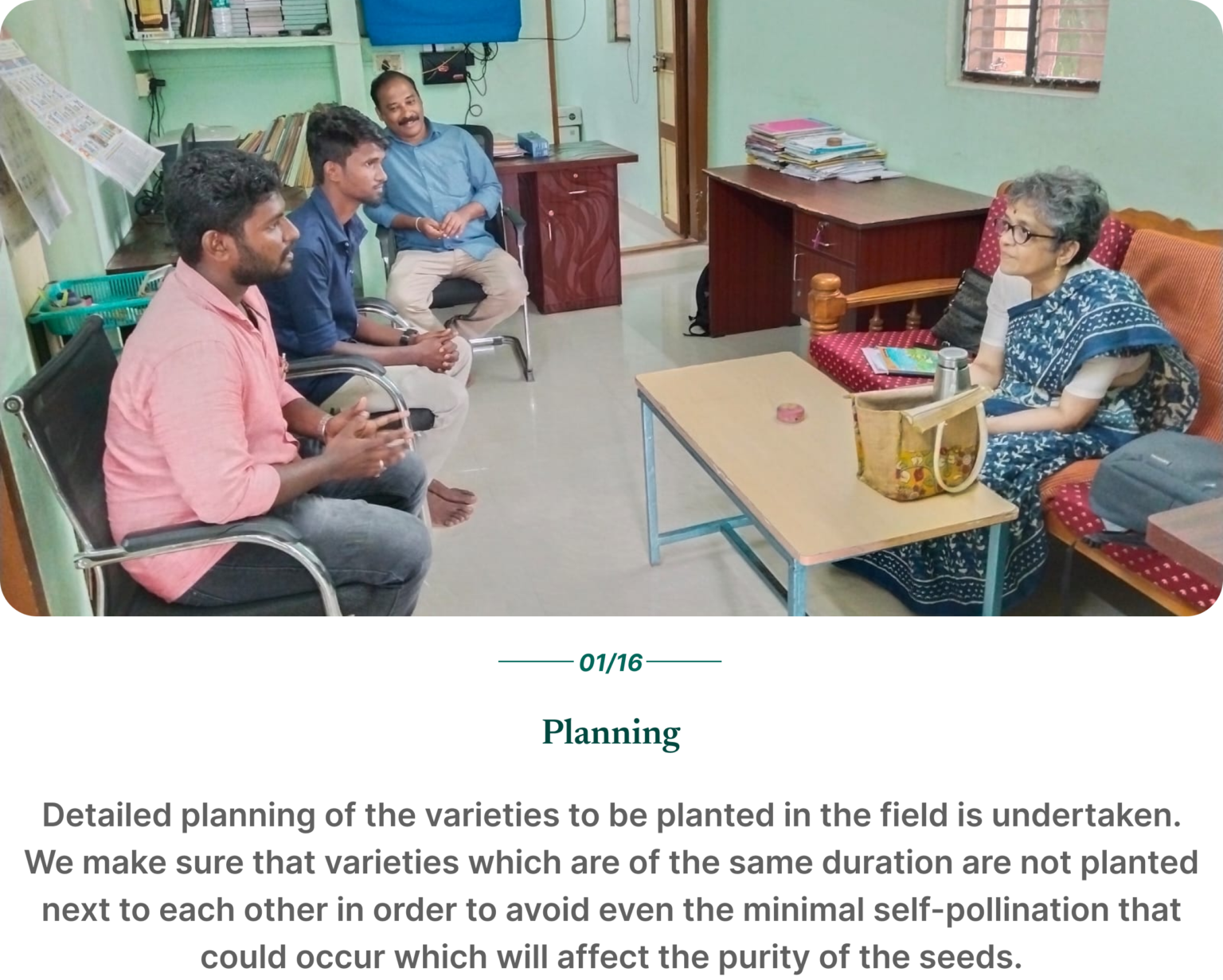
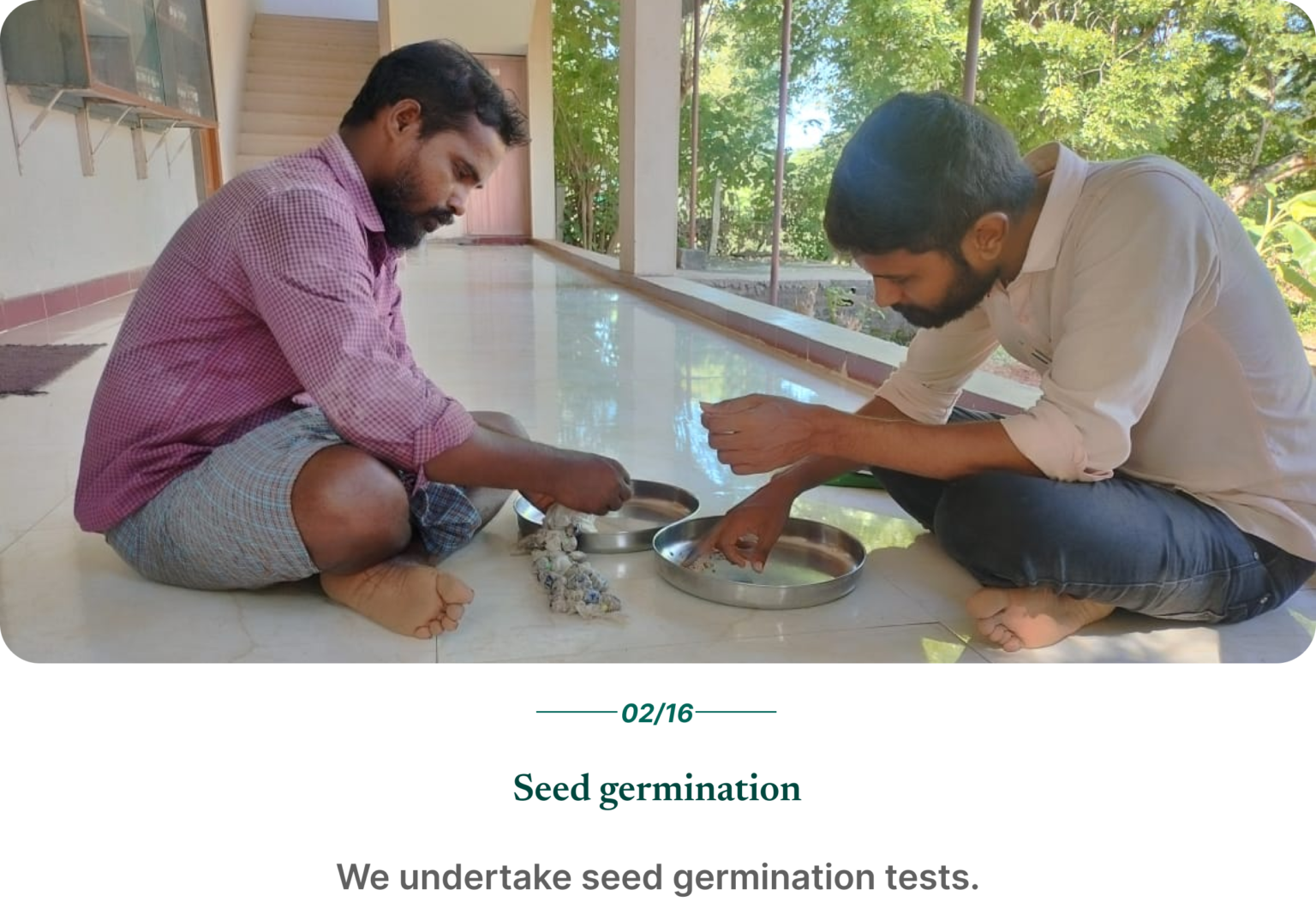

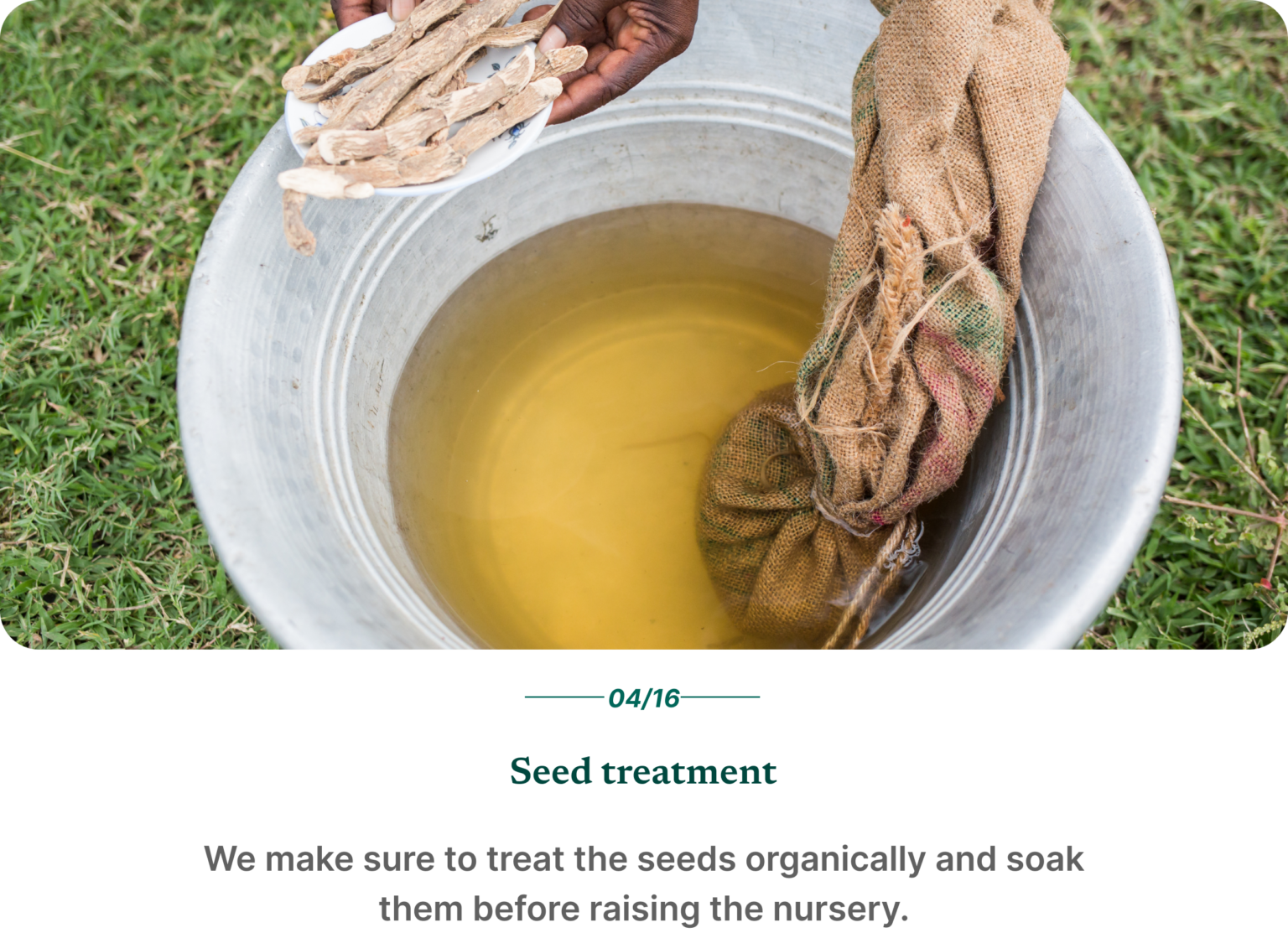
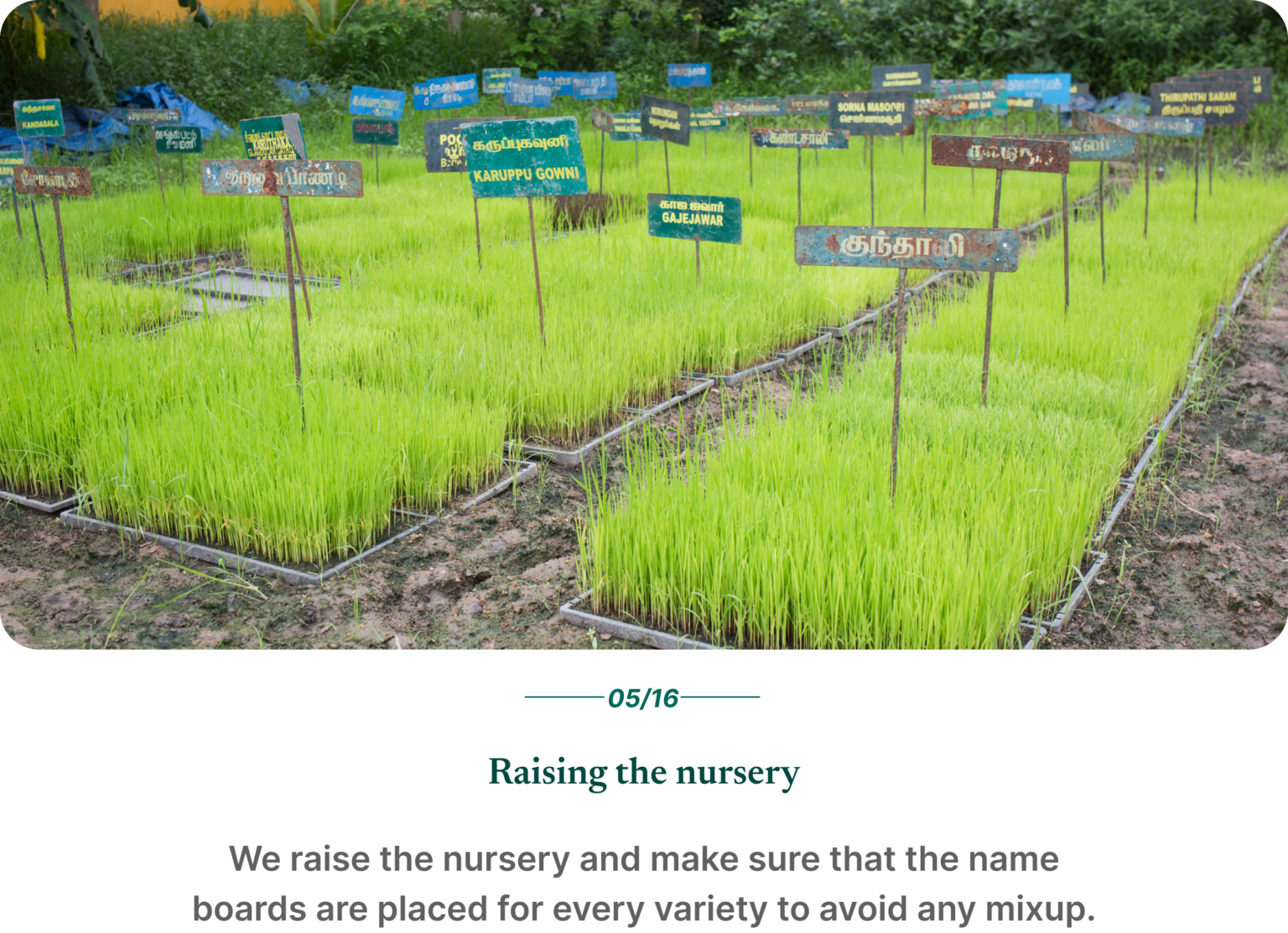
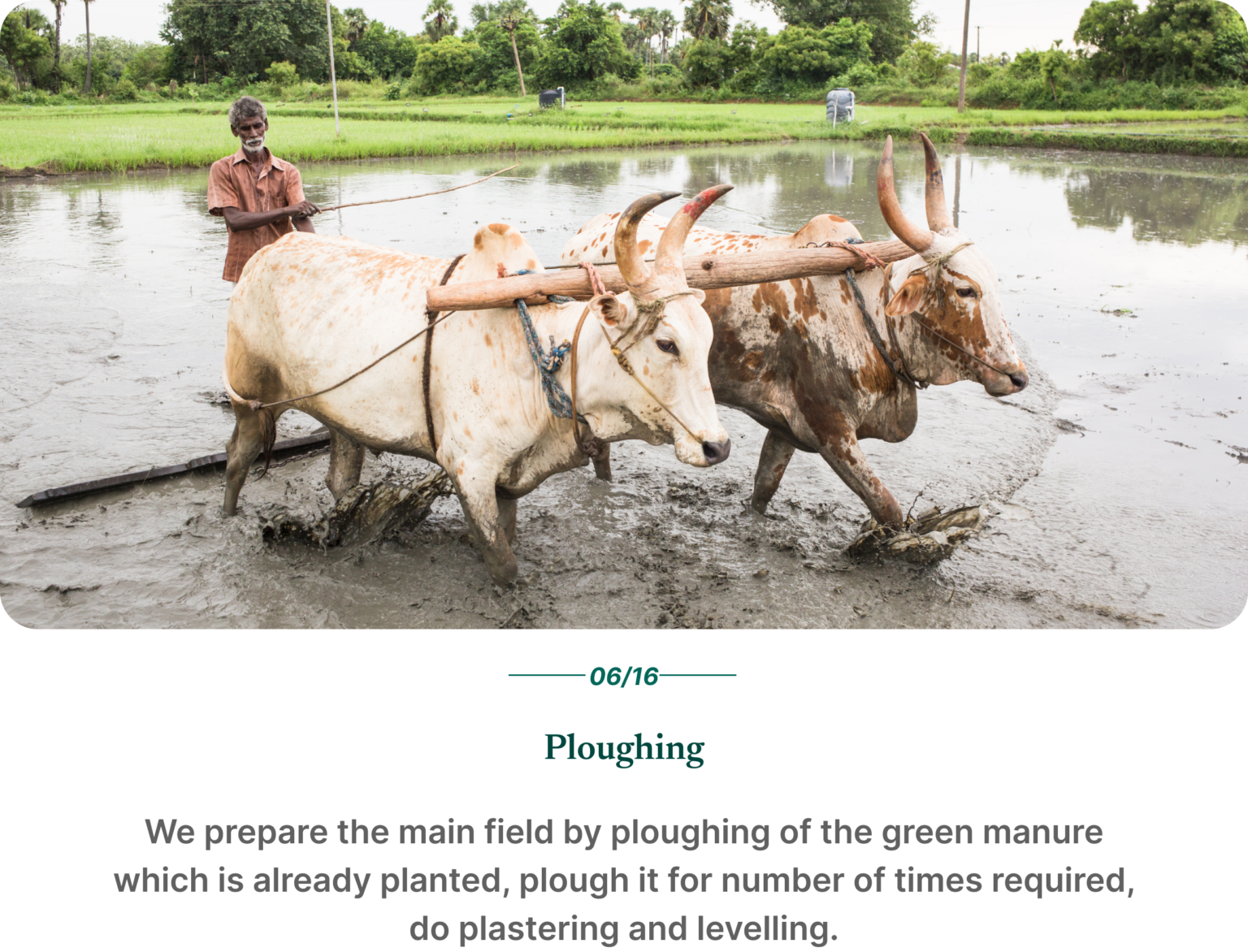
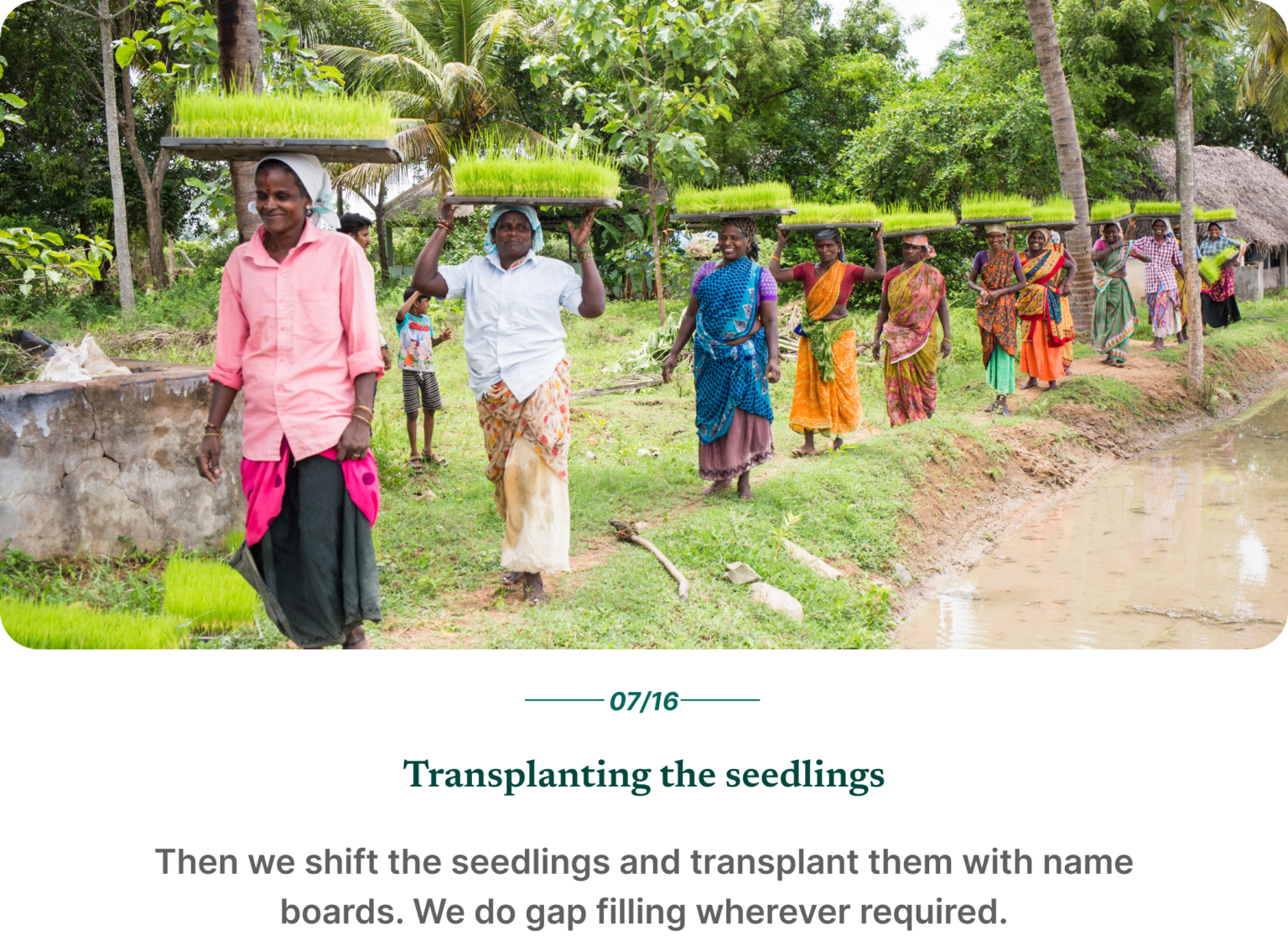
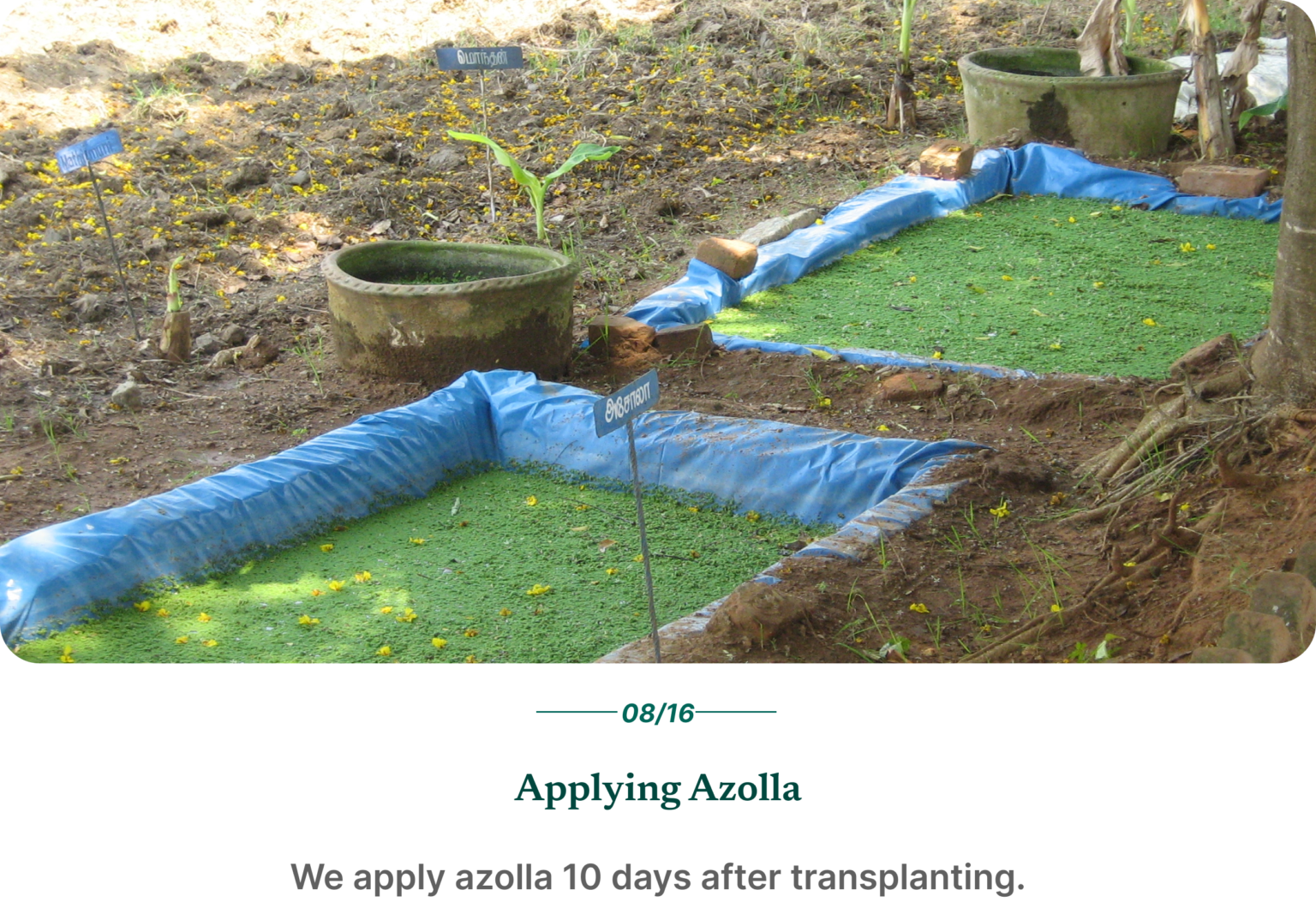
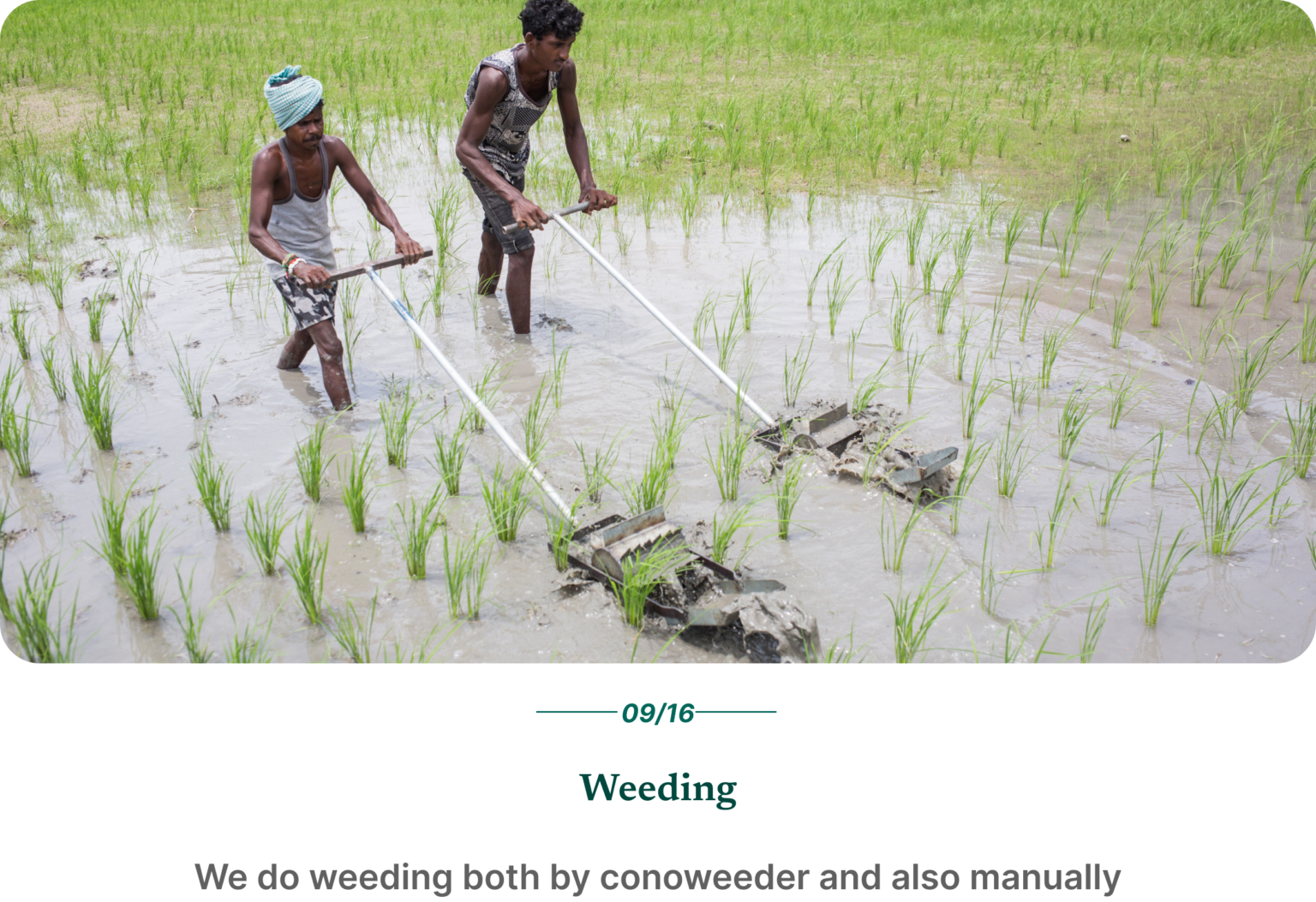
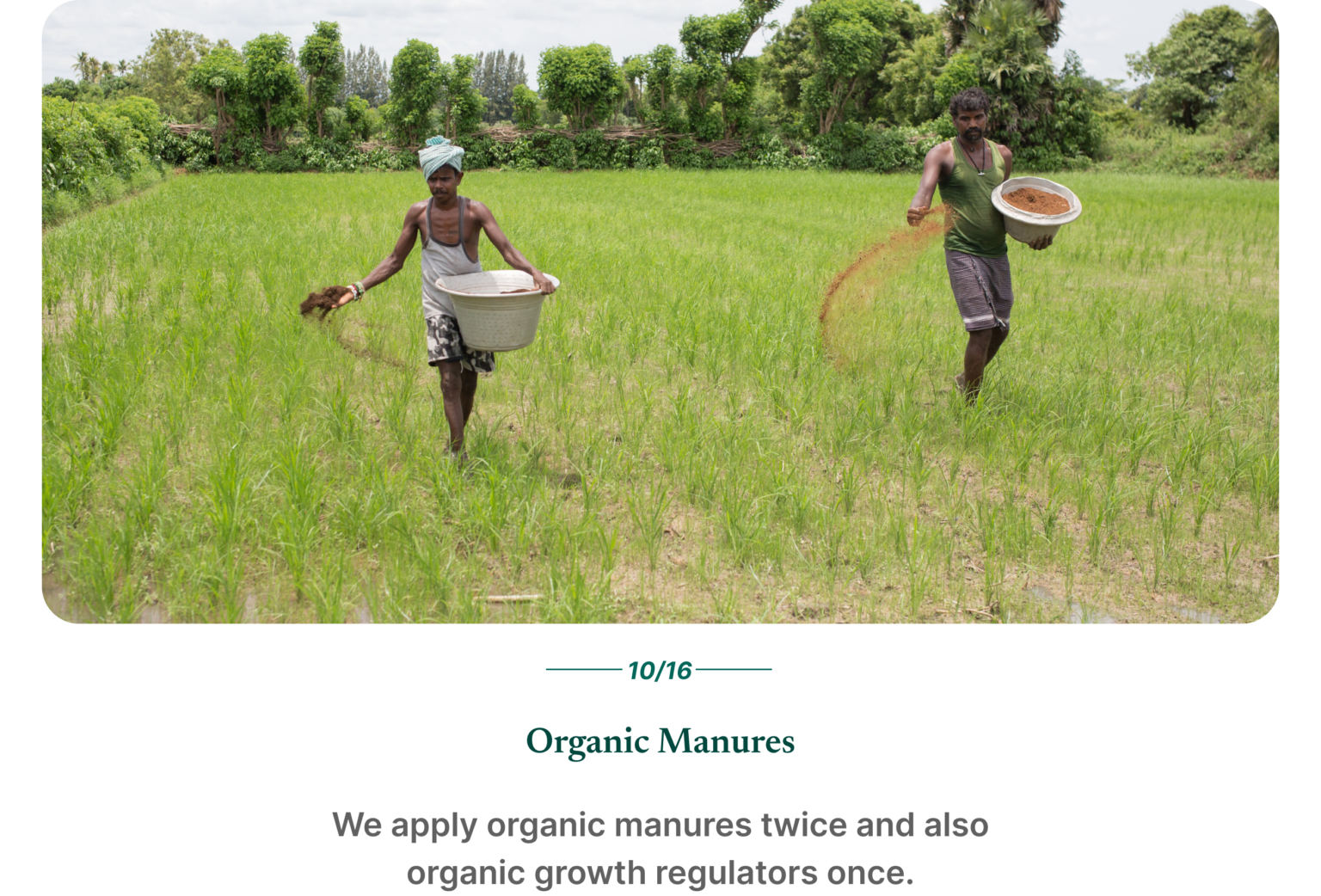
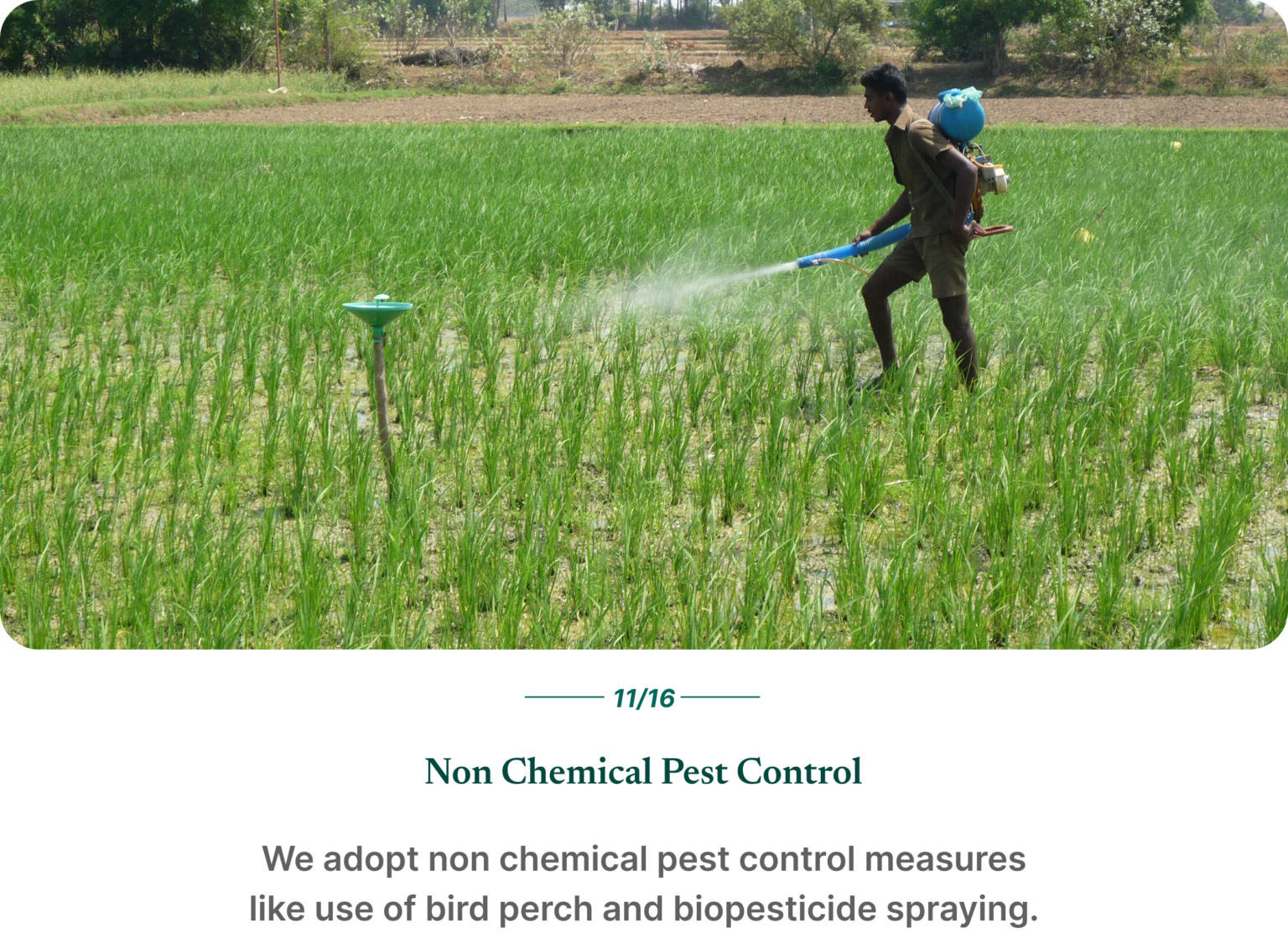
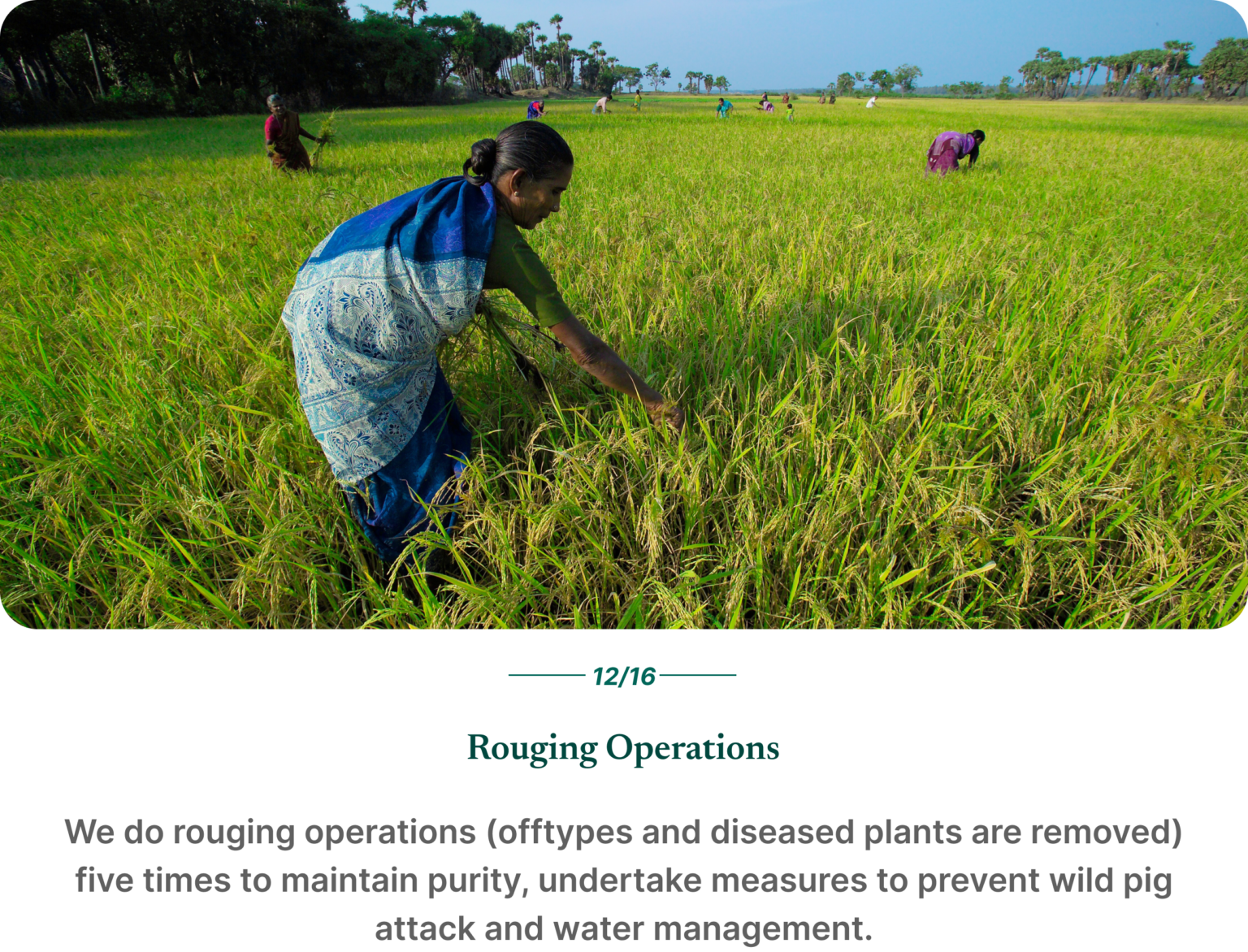
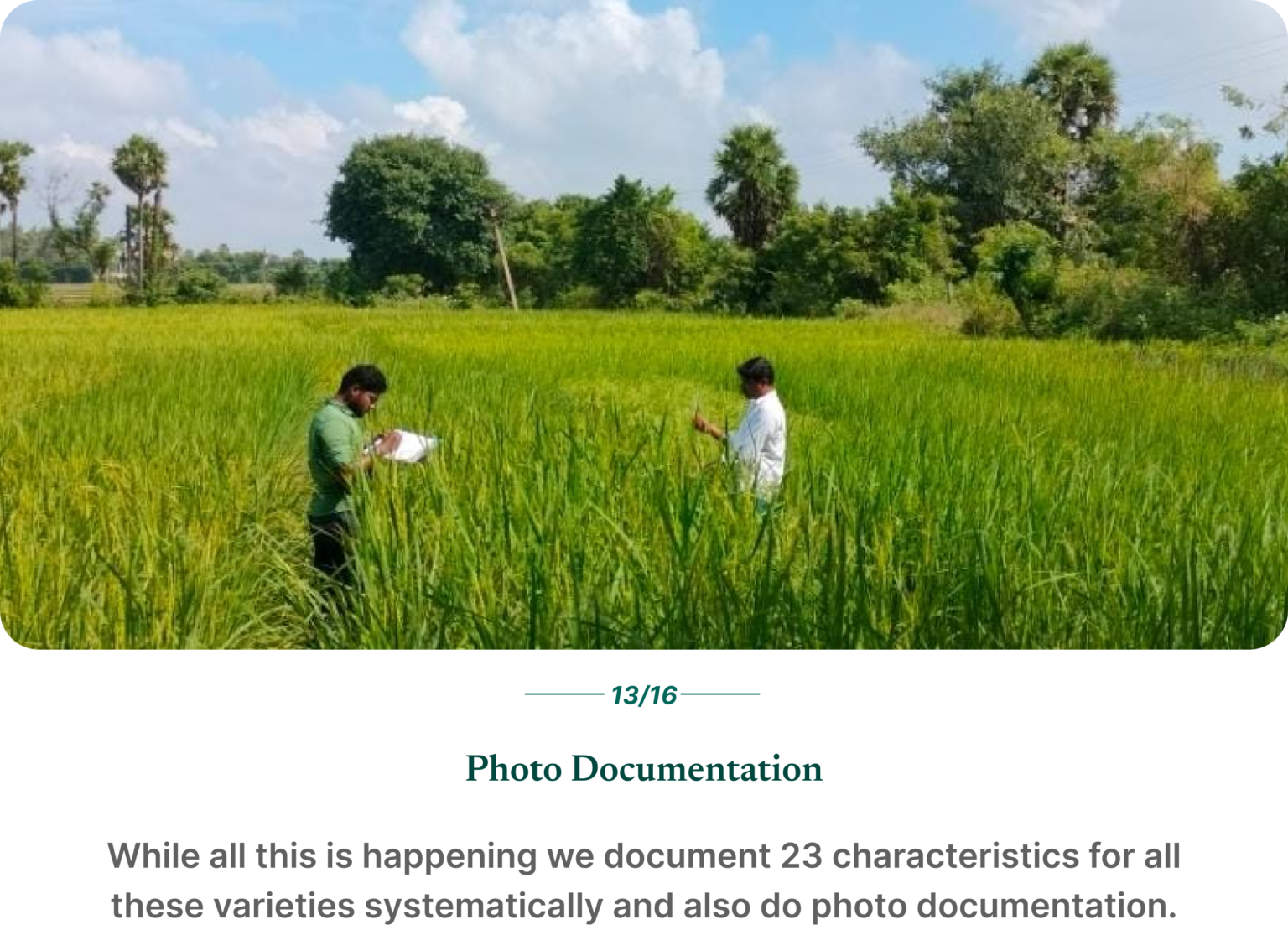

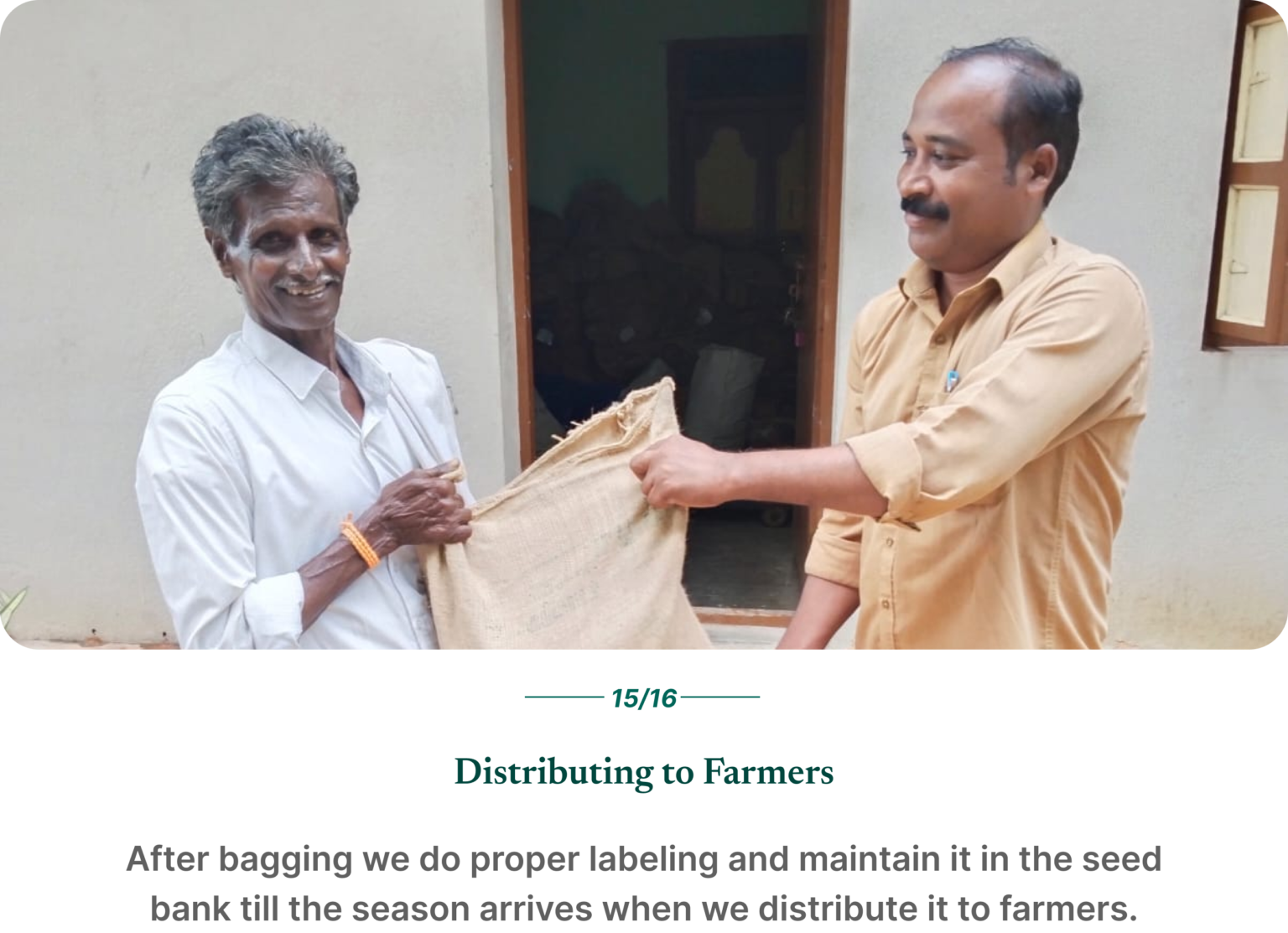
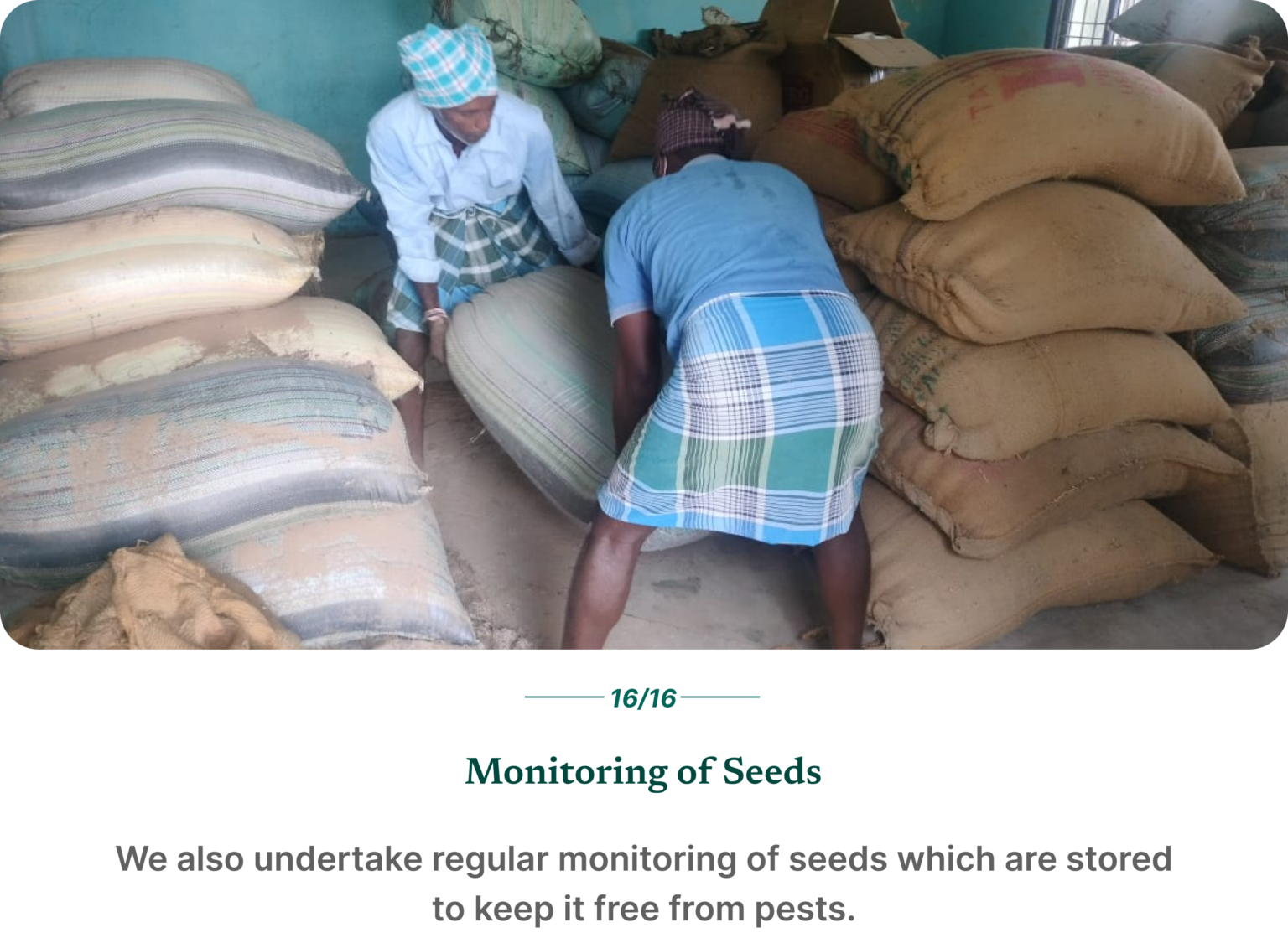

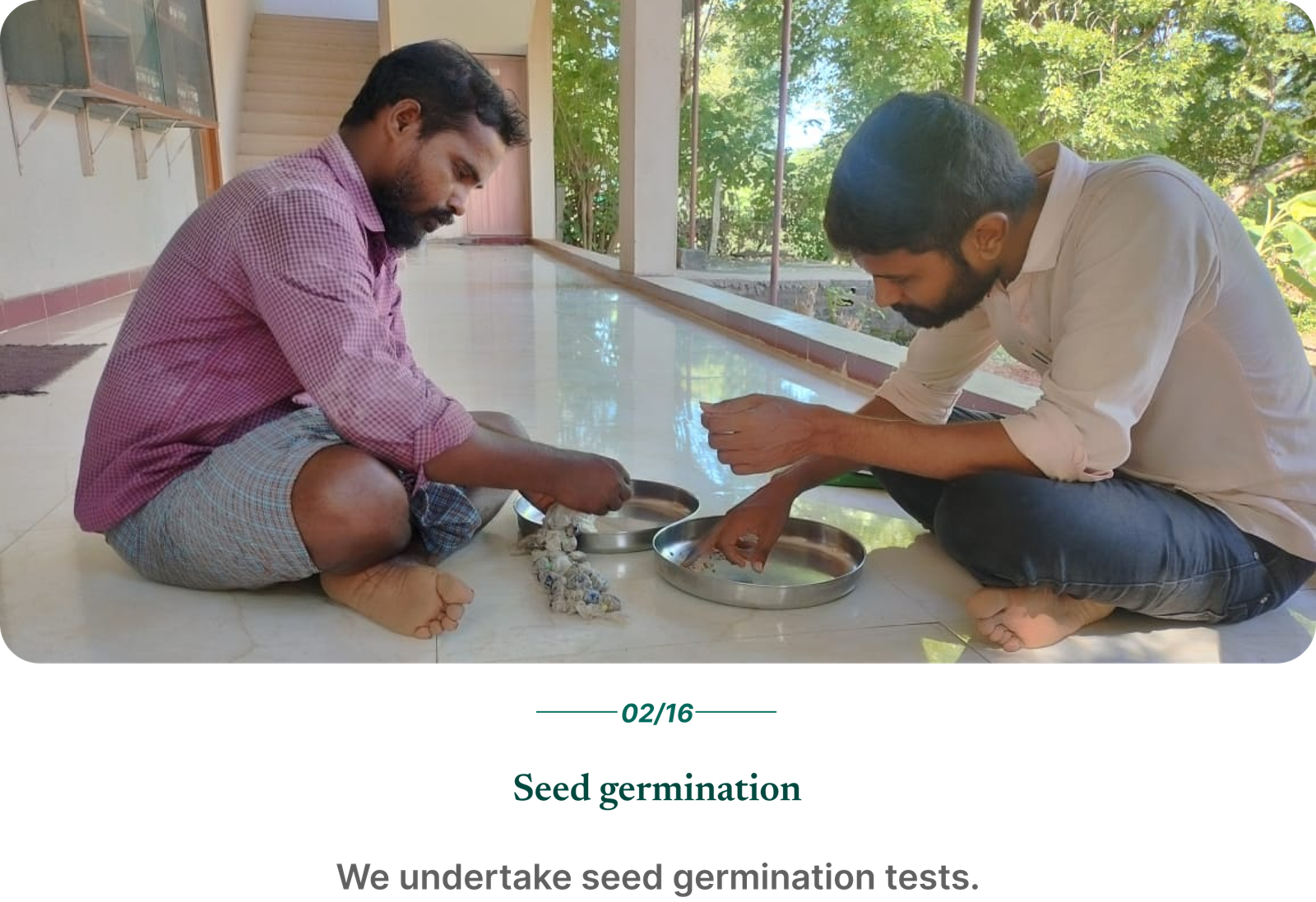
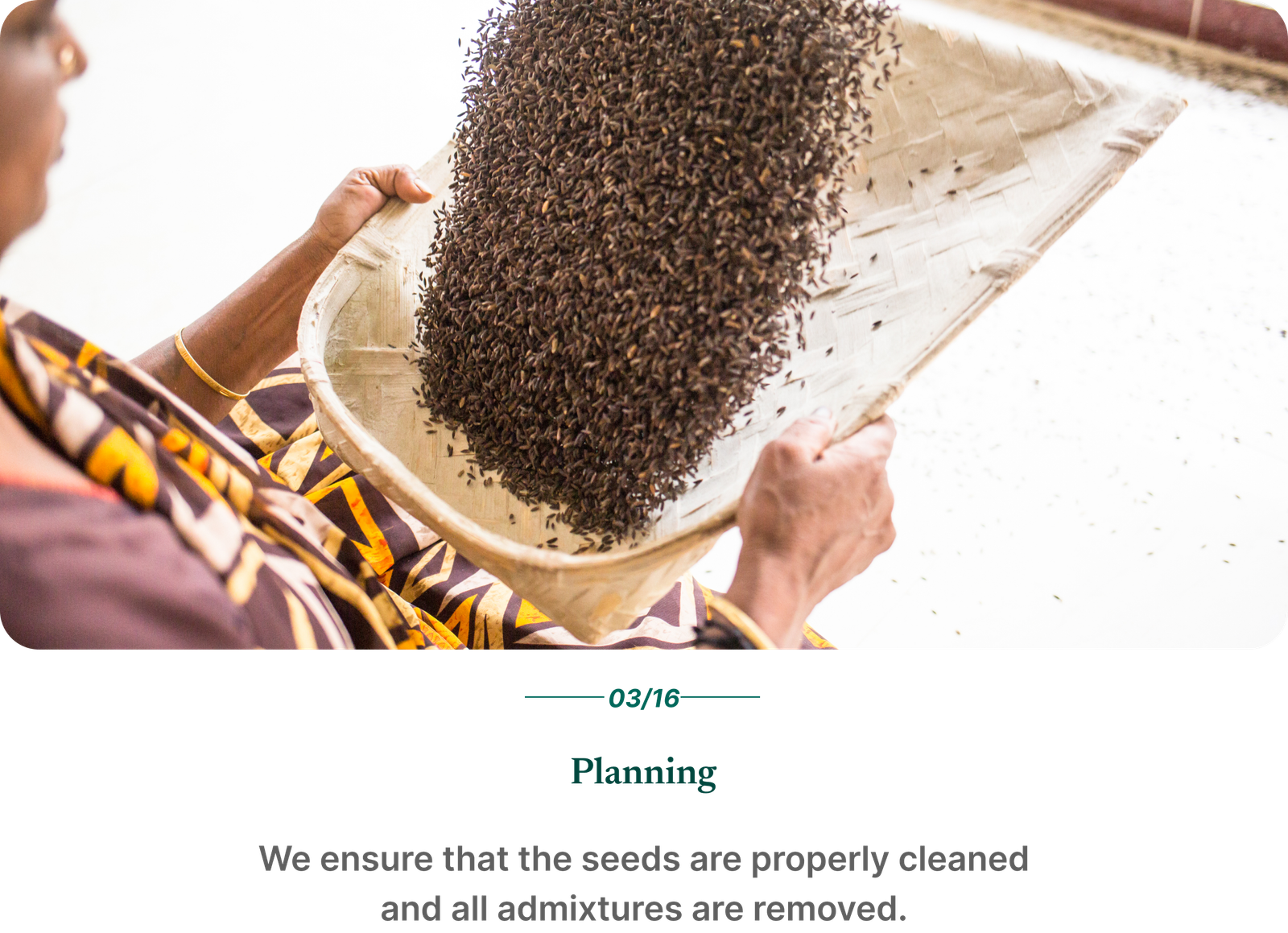
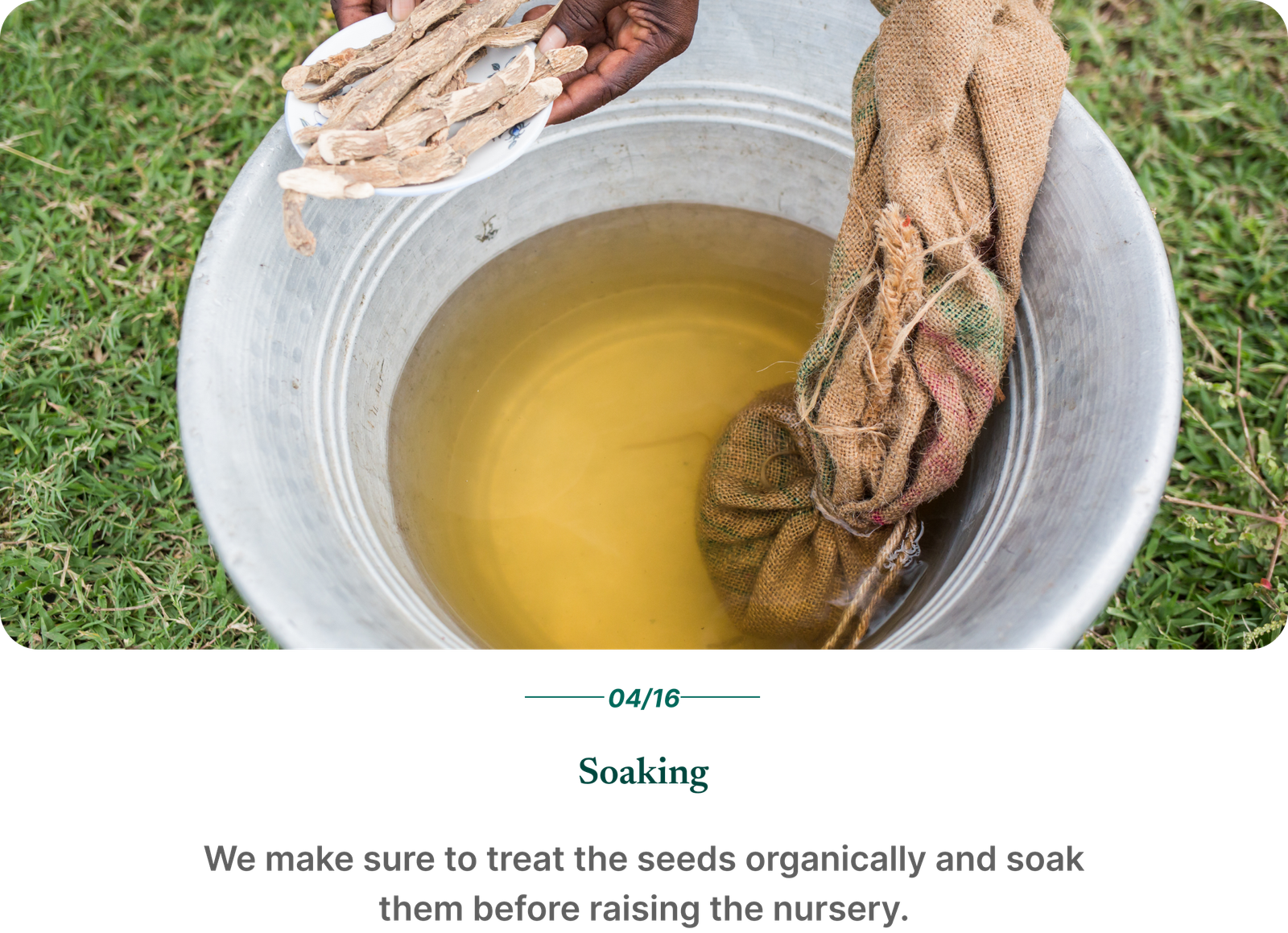



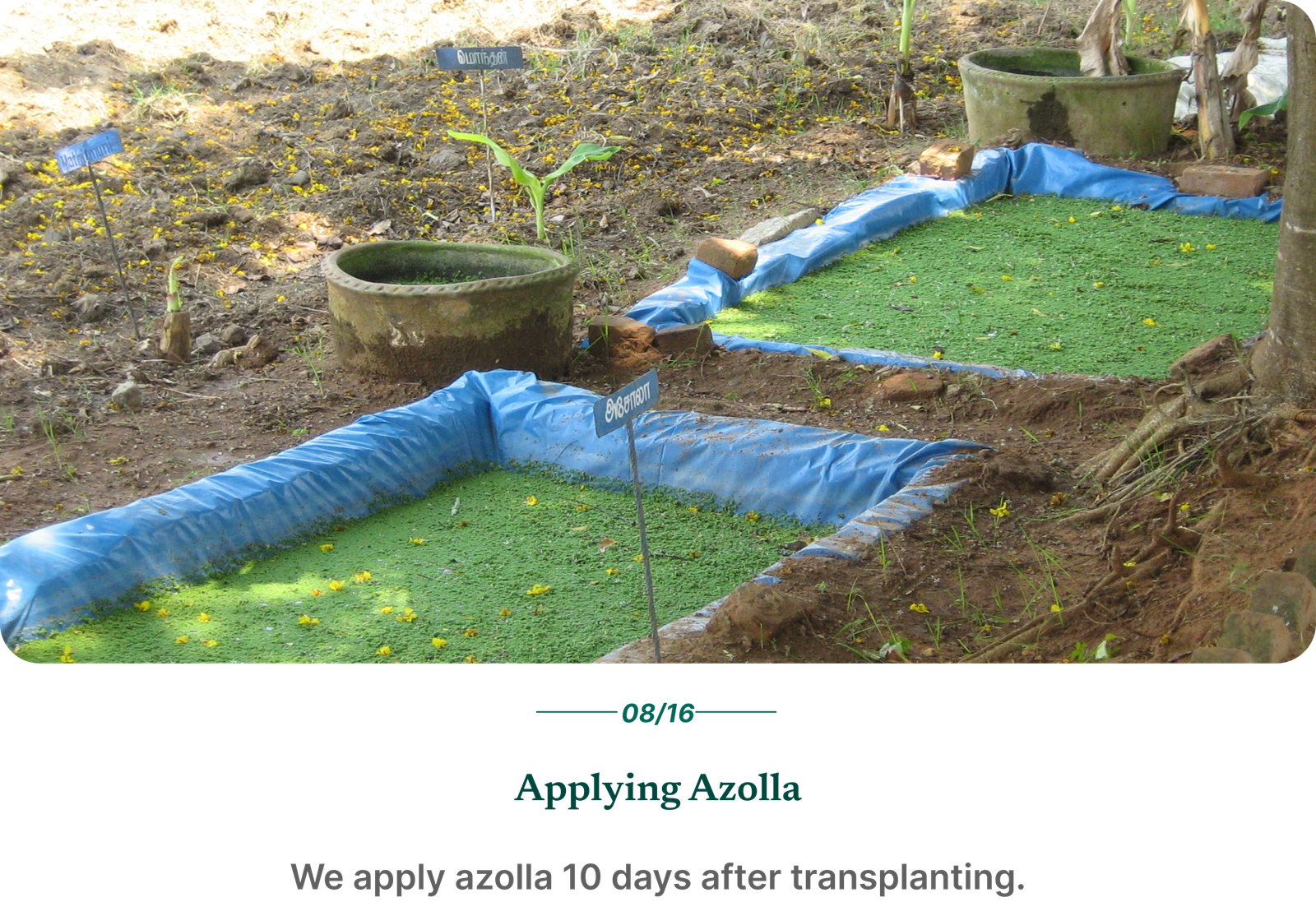



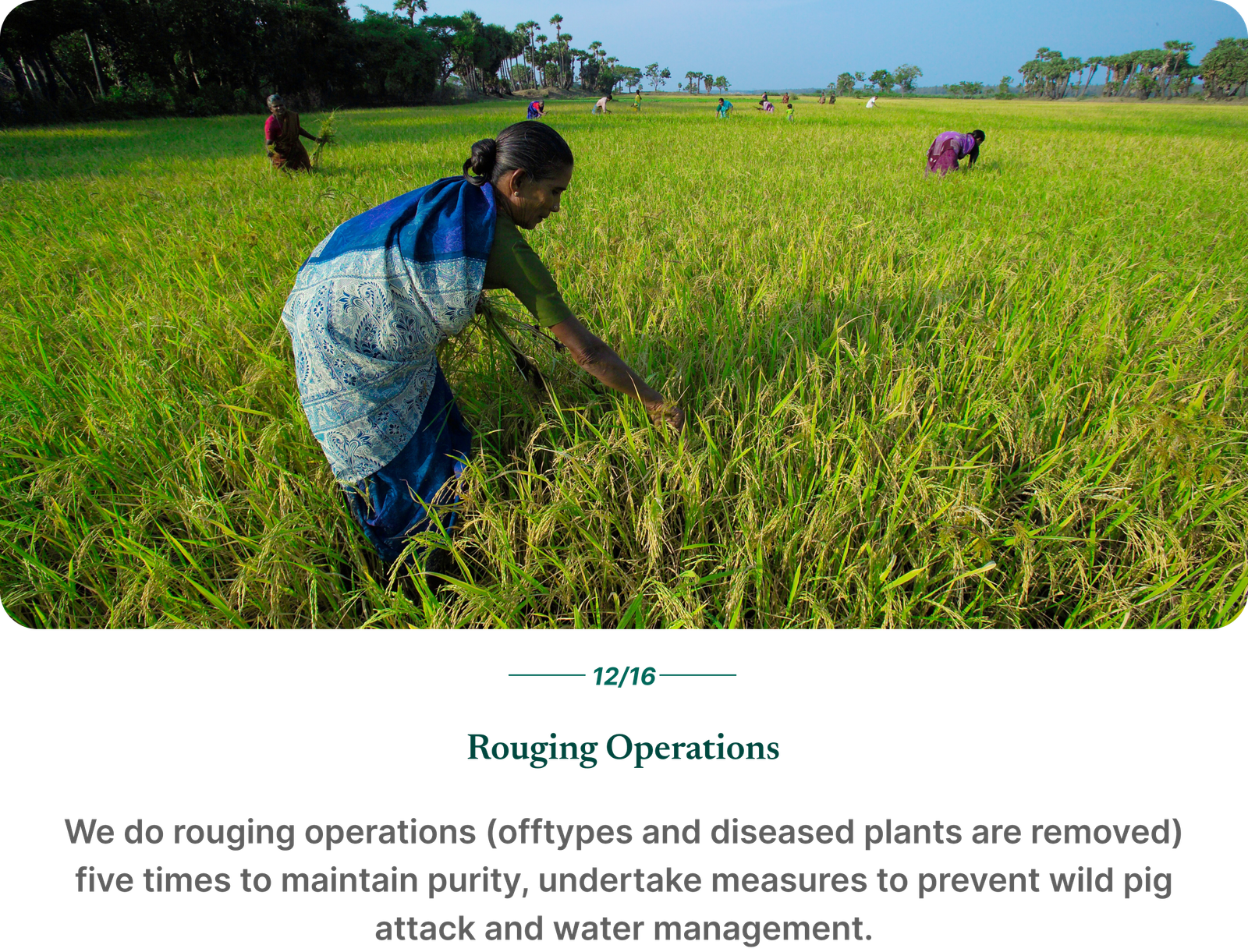
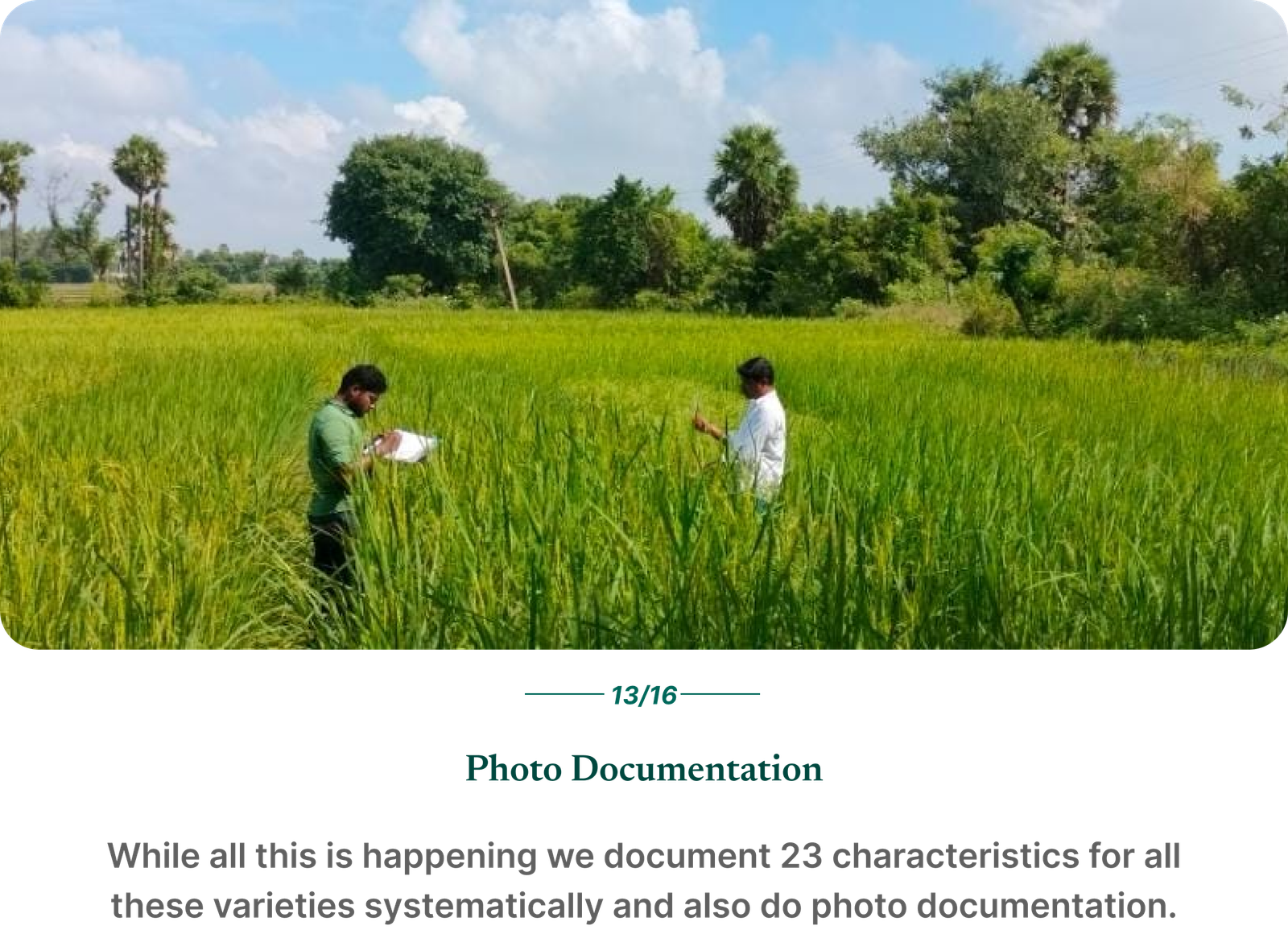
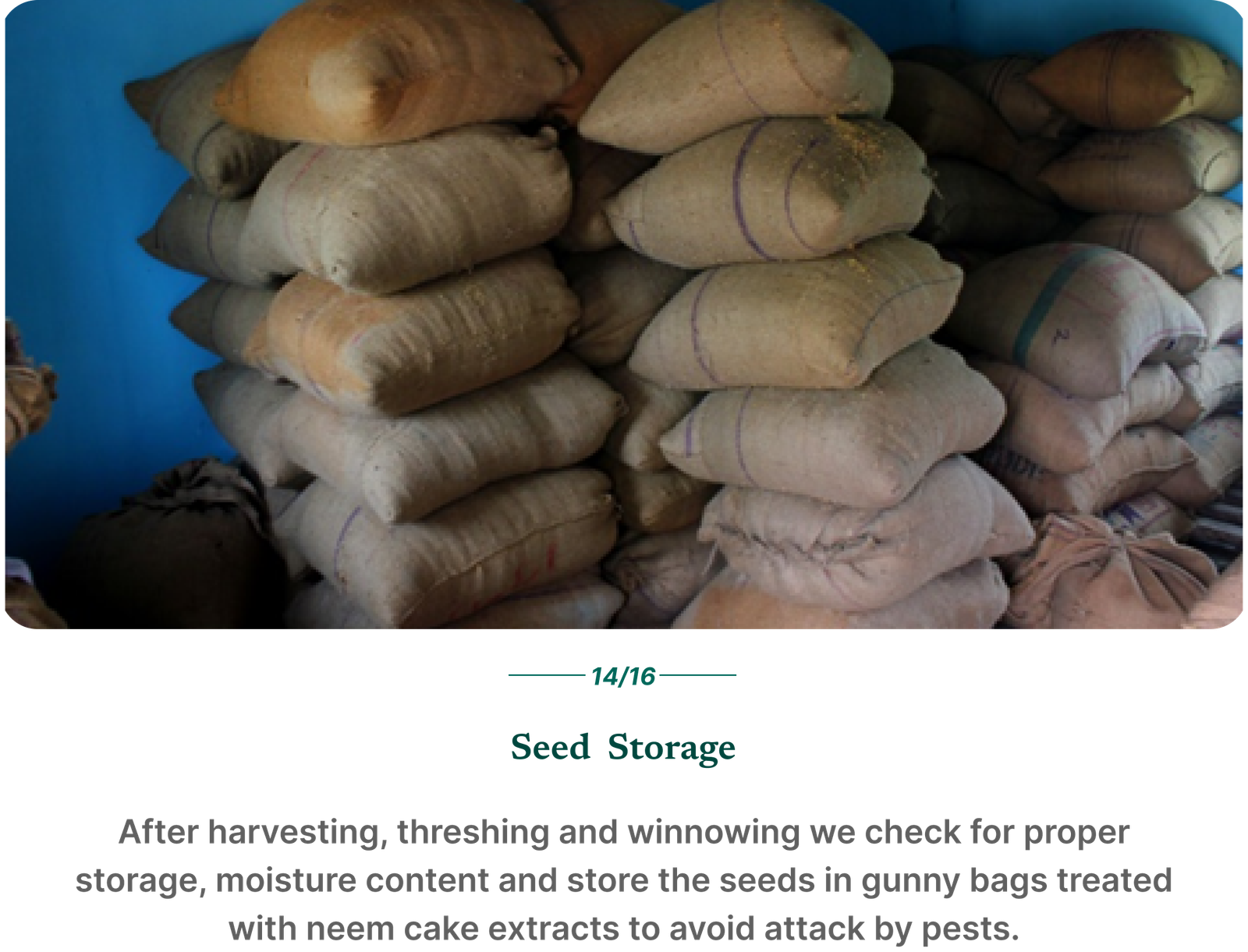
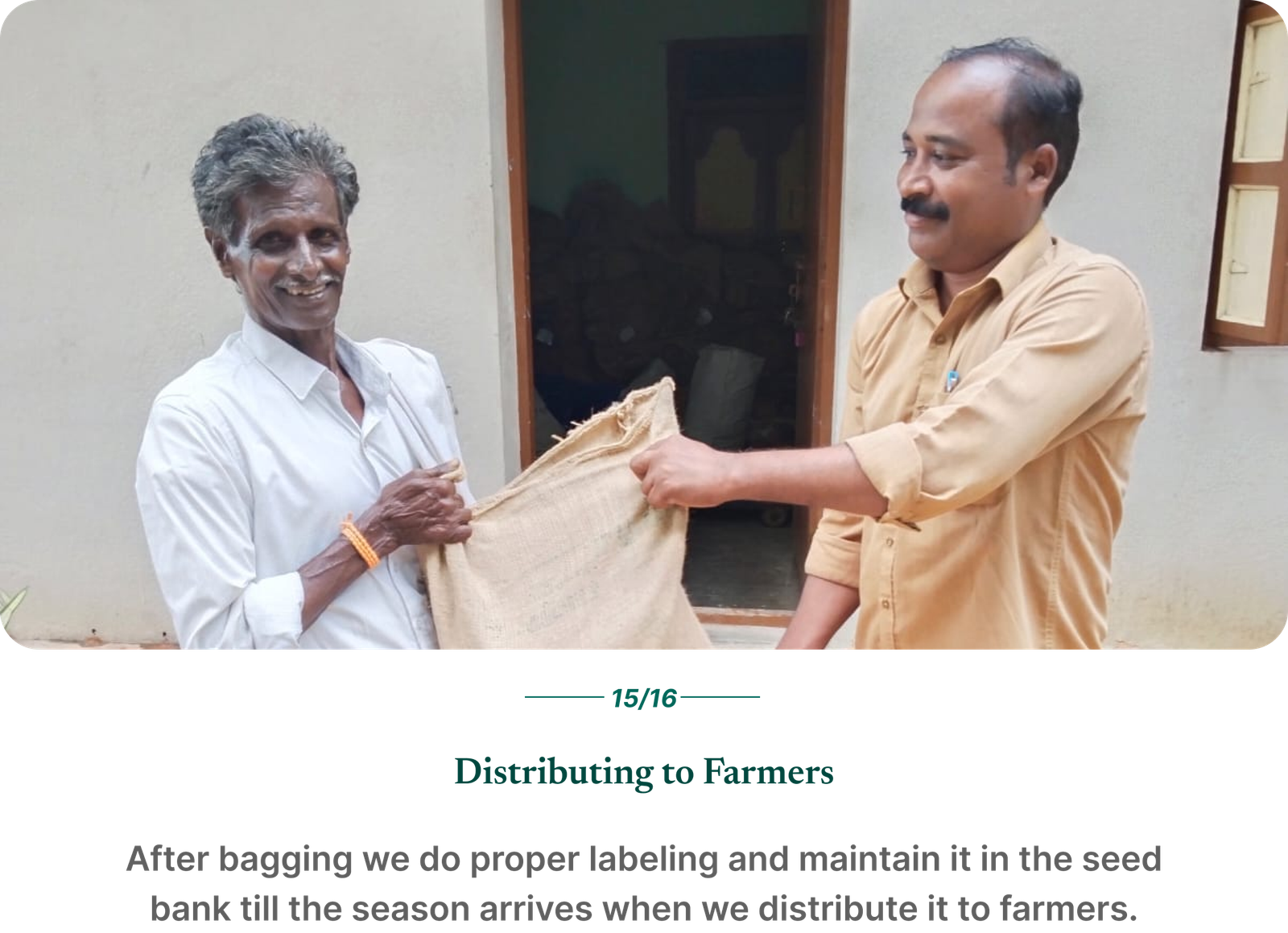

Upscaling Cultivation
Currently varieties are cultivated in 10,000 acres belonging to 10,000 farmers. 10 varieties are cultivated on a very large scale (around 7000 hectares) and around 50 varieties are available in the market throughout the year. Our farmers’ fields are spread across in nine districts of Tamil Nadu, namely Kanchipuram, Chengalpattu, Tiruvannamalai, Pudukkottai, Nagapattinam, Mayiladuthurai, Thiruvarur, Thanjavur, and Ramanathapuram districts. We also provide technical guidance regarding the cultivation of traditional paddy varieties on a timely basis.

10,000+
Acres Cultivated
Cultivated in 10,000 acres belonging to 10,000 farmers.
1500+
Acres Upscaled
10 varieties are cultivated on a very large scale around 1500 acres
50+
Varieties
in the market
Around 50 varieties are available in the market throughout the year.
Documentation & Characterisation

Documentation & Characterisation
We have done detailed documentation of the qualities and performance of these varieties for several years in succession. This means that for some of the varieties, we have records spread over several years. Also extensive photo documentation of these varieties are available. We have been conserving about 150 TRVs for several crop seasons. In general, the following agronomic properties have been noted regularly like Crop duration, Average height of the crop and maximum height of the crop, Number of grains per earhead, Yield of grain per acre and Yield of straw per acre. Totally 23 characteristics are documented for each variety.
Seed Production

Seeds used for the seed production should be of good quality from an authentic source. Seeds should be healthy with good germination percentage. Every year more than 150 traditional rice varieties are grown in 5 cents each under SRI for seed production.
We have done extensive experimentation and standardization of seed conservation through the system of – “Sustainable Rice Intensification (SRI)”. Due to the use of this SRI technique it has been possible to achieve cultivation with much lower seed rates and maintain a great degree of purity avoiding contamination since the quantity of seeds required per unit area of cultivation (the seed rate) is quite low.
We produce nearly 50,000kgs of seeds through this effort every year right now. This can be planted in more than 2000 acres. We do seed production with the help of farmers both in CIKS experimental farm as well as in farmers’ fields. Through this effort quality seeds are provided year after year to farmers

Capacity Building For Cultivation & Seed Production
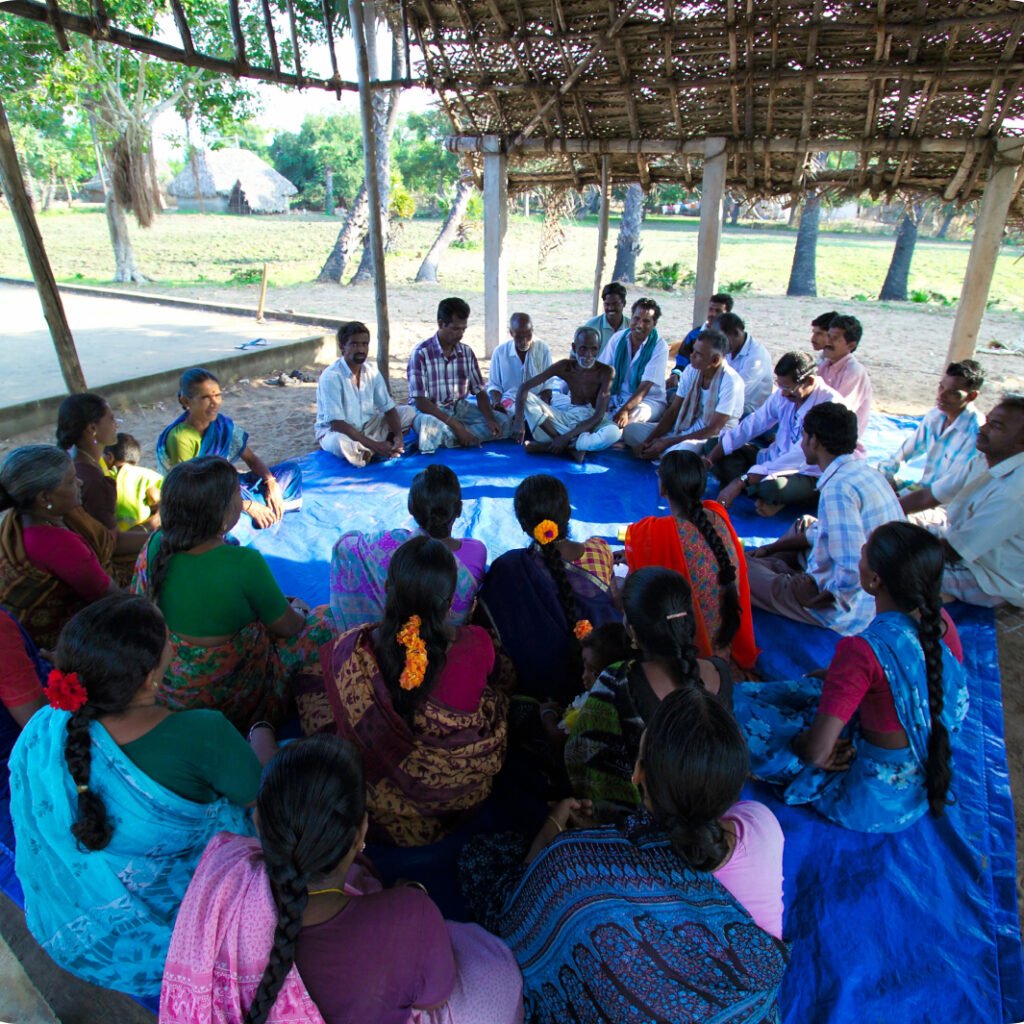
Capacity Building For Cultivation & Seed Production
We regularly conduct training programmes for farmers throughout the State of Tamil Nadu. The farmers are also encouraged to visit the conservation sites to observe the varieties and learn about them in detail. We have focused on various topics from seed to market and our training programs are tailor-made to suit the needs of the farmers. We have conducted trainings on the following topics:
• Organic packages for traditional rice and other crops
• SRI (System of Rice Intensification)
• Cultivation of traditional rice varieties
• Preparation of organic inputs for agriculture
• Value addition of products
• Preparation of business plans
• Setting up and running enterprises
Farm School Programs
We also regularly conduct farm school program for the school children. Here, children are being taught about the cultivation of traditional varieties from "Seed to Market." They are actively involved in all farming operations, including seed treatment, nursery raising, ploughing, transplanting, weeding, pest control, and harvest. Moreover, they are also encouraged to sell their produce to the parent community. These training sessions have fostered a great deal of enthusiasm and interest among both parents and teachers
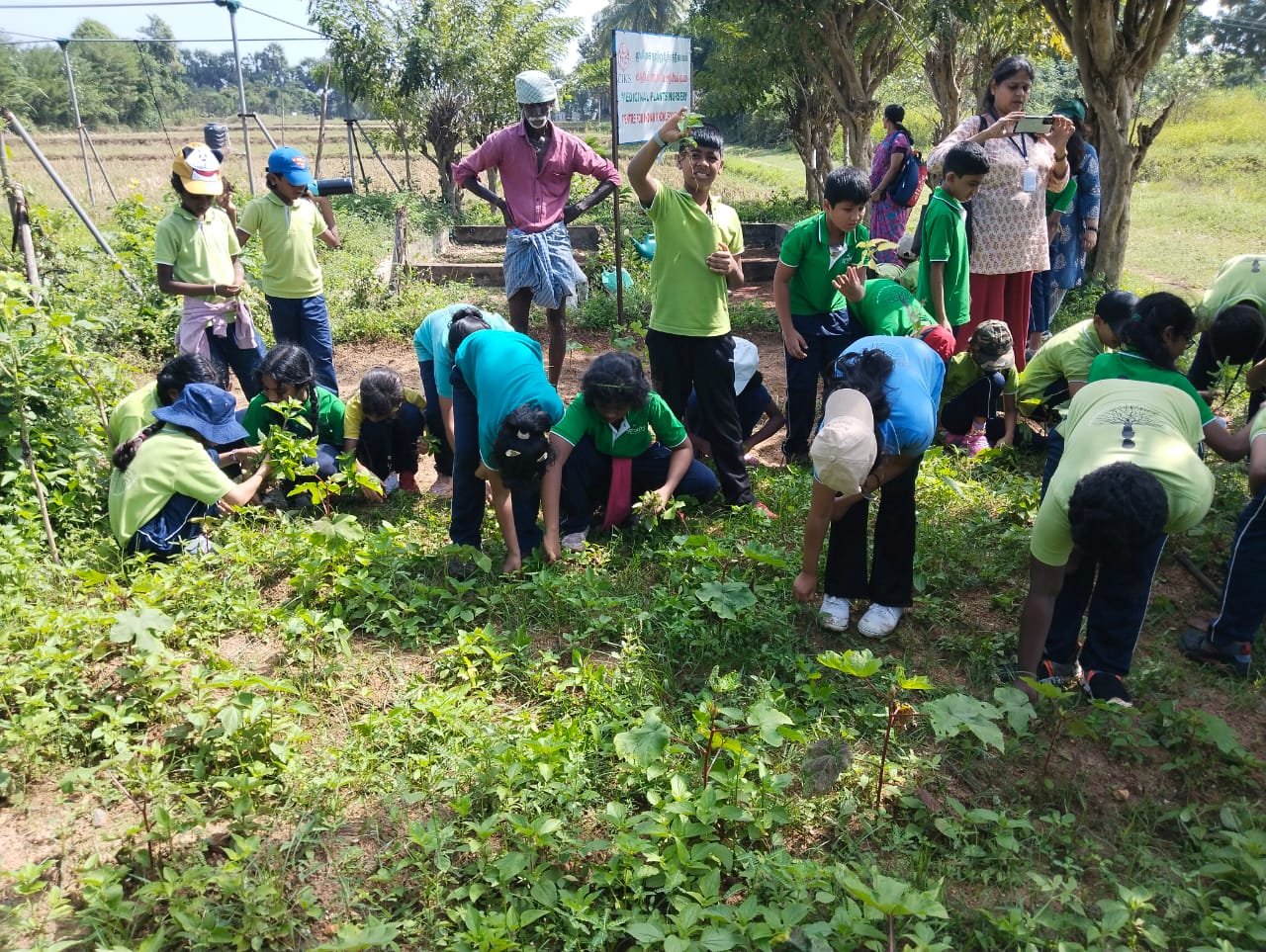
Study of the Nutritional Properties
Nutritional properties of 130 TRVs have been studied, through collaborative projects and individually by CIKS.
The parameters analysed for each rice variety:
Moisture and total ash / Total protein, total fat and dietary fibre / Carbohydrate / Energy / Potassium, Iron, Calcium, Magnesium, Zinc and Phosphorous
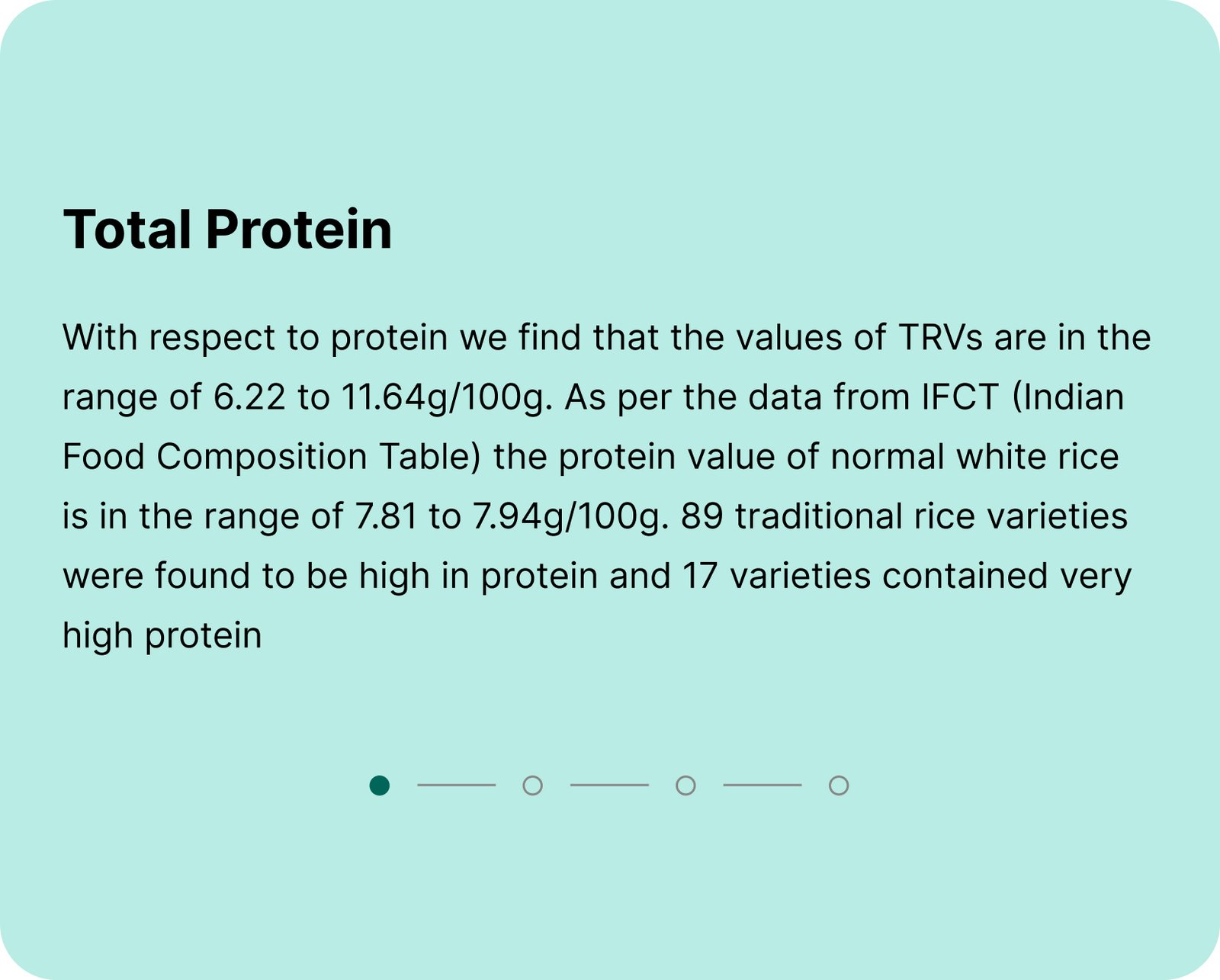
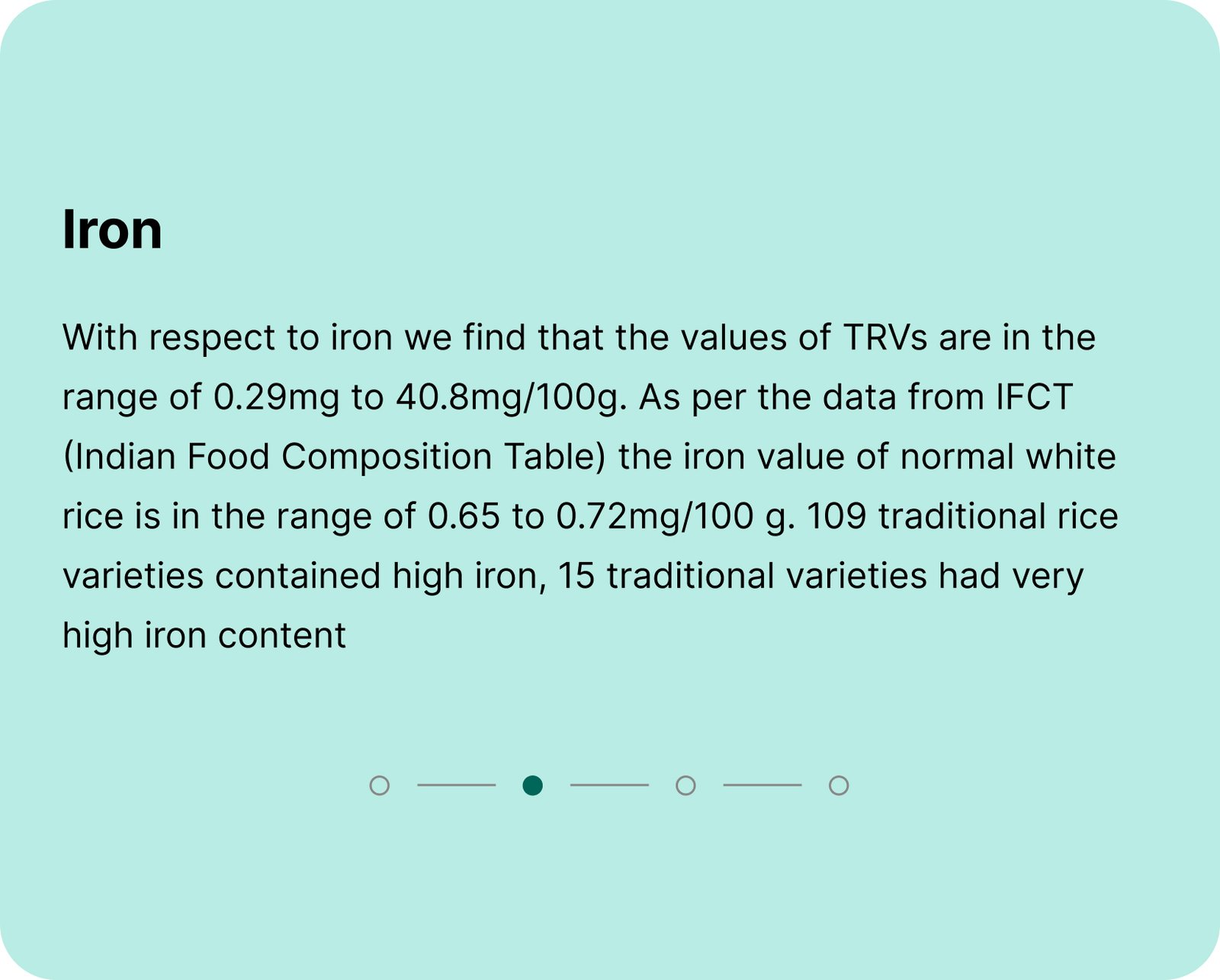
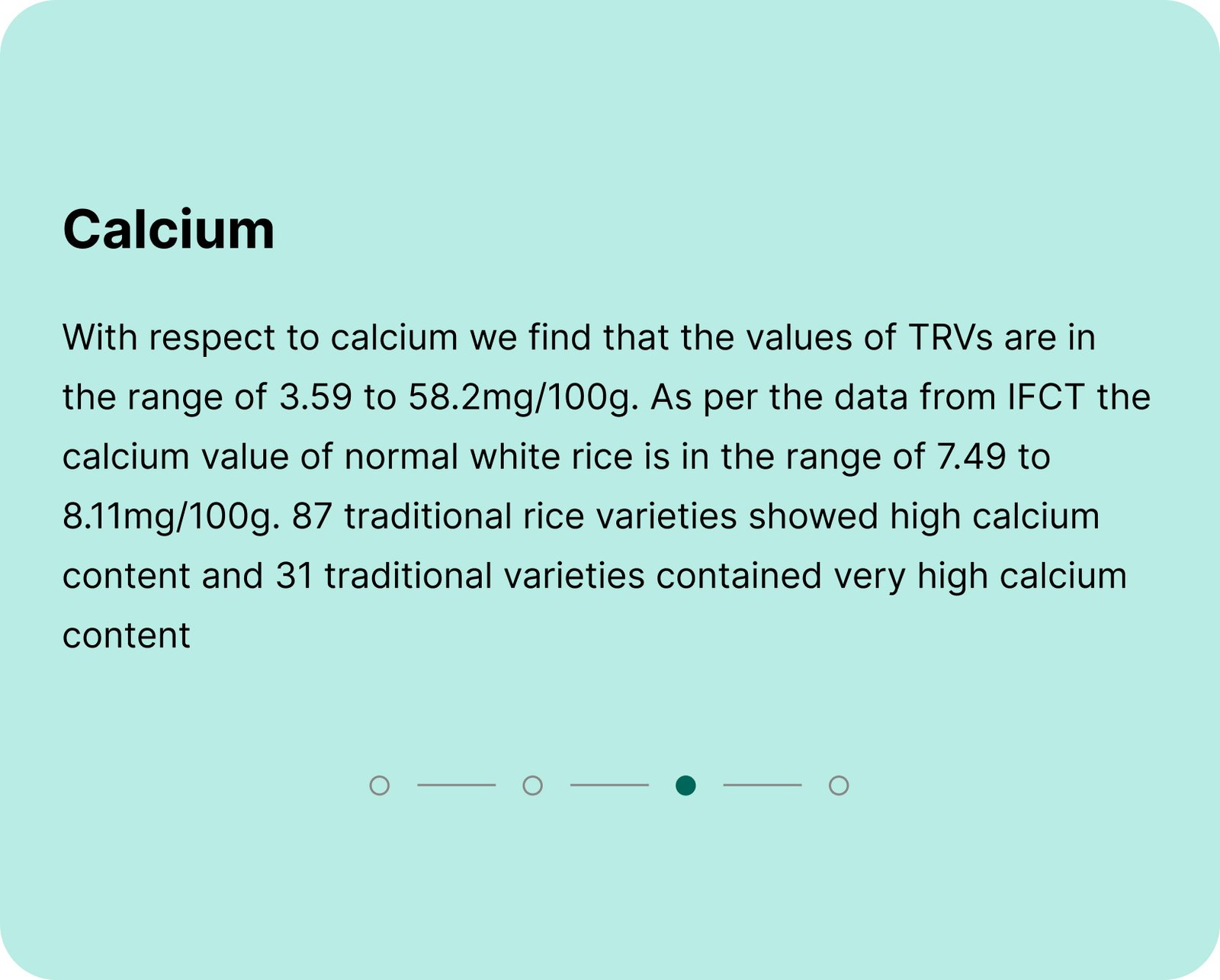
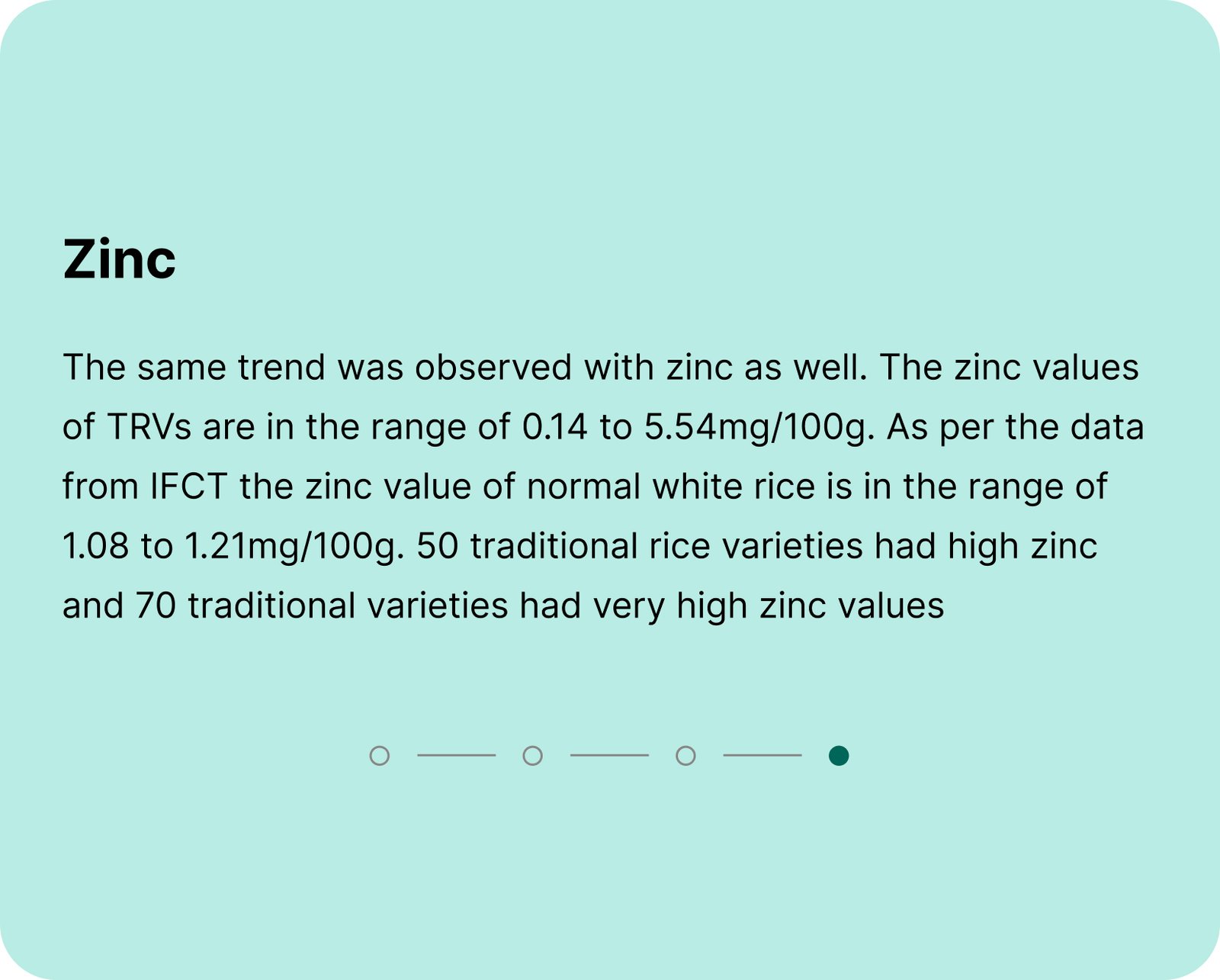
Study of the Therapeutic Properties
Secondary research looking at scientific literature has also been done. We have conducted various studies to analyse the vitamin content, phytochemicals, antioxidant, antidiabetic and anticancer properties of selected traditional varieties. The findings of the studies have revealed that these traditional rices can be used for some of the conditions such as diabetes, cancer, inflammation, obesity, cardio vascular disease, arthritis, etc.




Research On Processing Traditional Rice Varieties
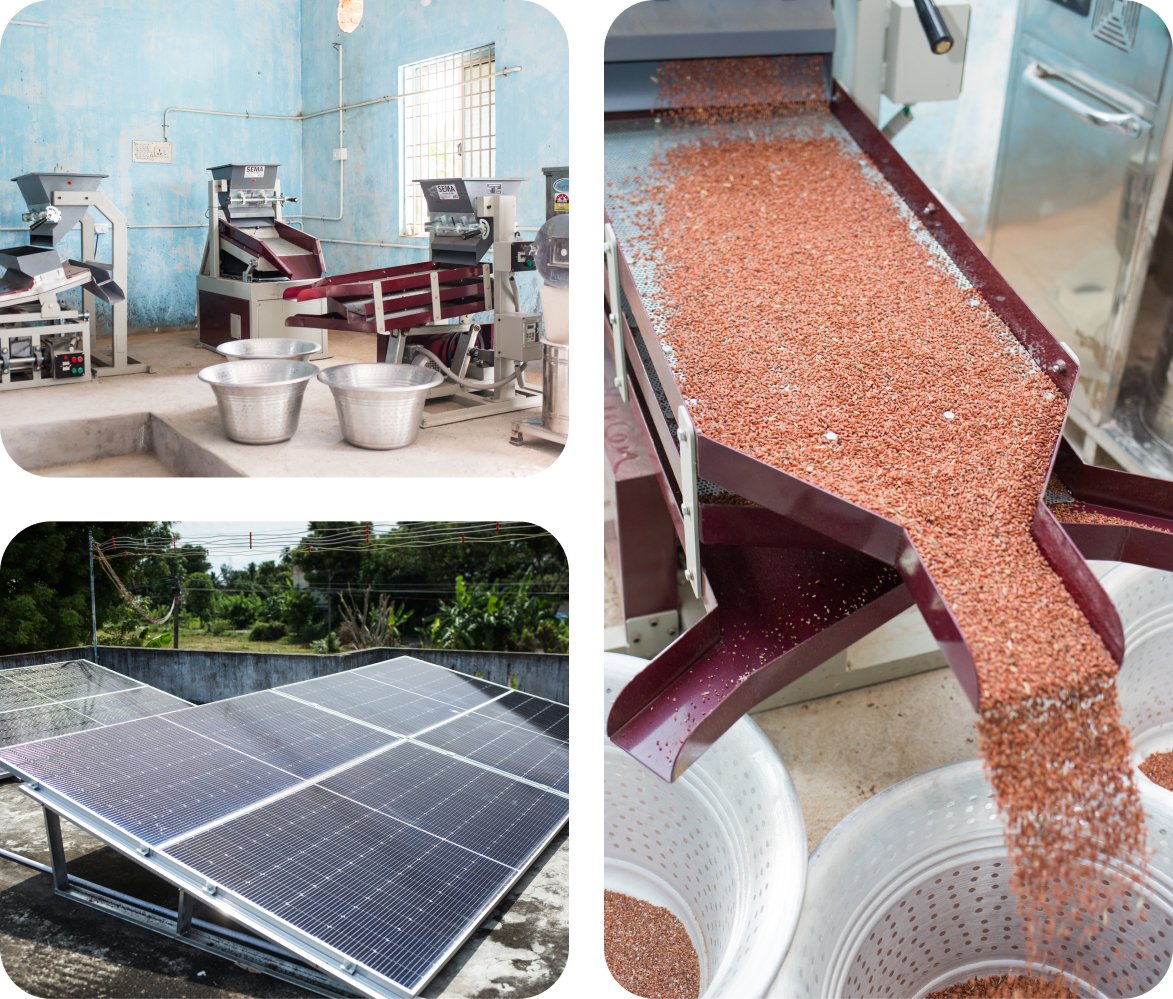
Research On Processing Traditional Rice Varieties
Currently there are large mills which process mainly the modern and hybrid varieties. The equipments are designed in such a way that they can process them only on a large scale and is also suited to processing only these grain varieties. We need equipments which can process TRVs on a small scale. We also need to adapt these for different varieties so that while processing the original characteristics are not lost.
Taking into account all these considerations, a small scale unit is set up by us to process the paddy from grain to rice completely inhouse. This will be a demonstration for farmers and such units can be set up in communities. A mini rice processing unit with seven different types of sieves to process rice in different size ranging from fine to coarse is available. We also have a mini flour machine which is used to help prepare value added products from rice flour thus obtained. Some of the other rice processing equipments available with us are Precleaner, Prehusker, Seperator, Destoner, grader and polisher

Inputs For Organic Farming
Most of the inputs for organic farming is not available at the required time and also in sufficient quantities. Farmers are also used to the culture of ready to use inputs like the modern fertilizers and pesticides. Alot of effort needs to be put in to make sure that good quality inputs are available in sufficient quantities and which are easy to use. We have standardized through research several inputs that are being used for organic cultivation which includes neem oil based soaps, pungam oil based soaps etc. Through research we have also come up with standard operating procedures for preperation of vermicompost, panchagavyam and biopesticides. Use of biofertilizers and neem seed powder for rice varieties has also been standardized. We have also worked on providing support for setting up small scale input production units like Neem seed powder processing units, Vermicompost production units, Neem oil soap production units and Biopesticide production units.

Publications
CIKS has also brought out a number of publications on traditional rices covering a wide range of topics which includes their conservation aspects, Seed production, SRI methods, Cultivation techniques, agronomic properties, organic packages and nutritional and therapeutic properties etc. Click here to read some of our publications.
Creating Awareness

In October 2016 we launched a website solely for the Namma Nellu programme (www.nammanellu.com). The website provides comprehensive information on our conservation efforts and about the traditional ricevarieties. This website is also being updated from time to time
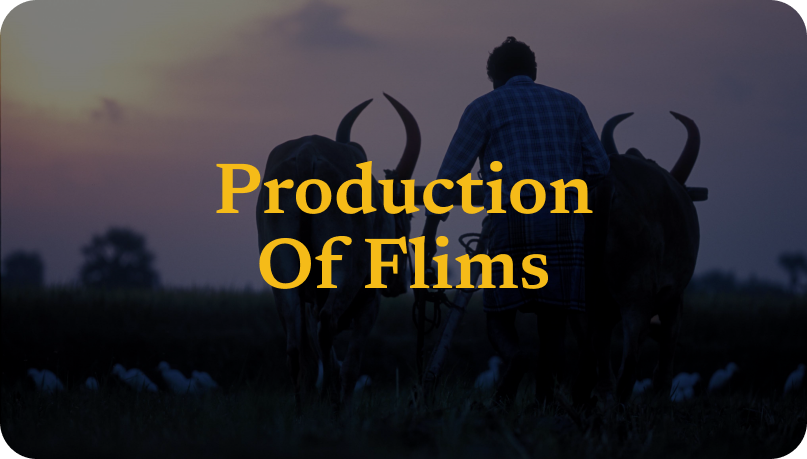
We have made several short films, given interviews for news channels. Click here to view our videos.

We also regularly conduct food festivals and organize experiential lunches using TRVs. As a result of this some of the traditional rice variety dishes have become part of the regular menu of popular restaurants. We participate in exhibitions and expos. We also formulate recipes from these TRVs to enable consumers use these varieties effectively. Some of our recipes can be found in the resources. Click Here to View
Marketing
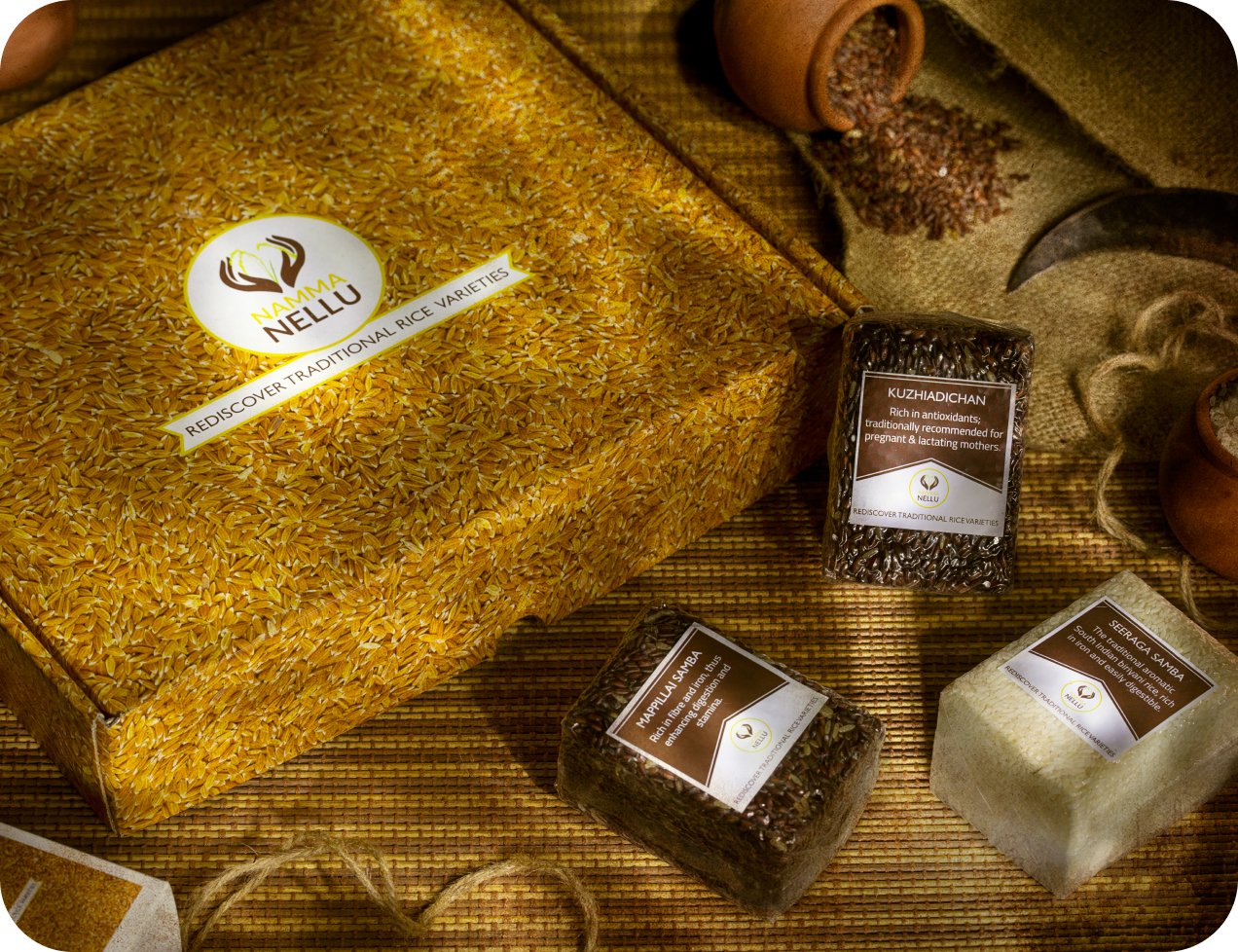
Marketing
Several efforts were done during the years to help farmers market their varieties. The marketing was not directly done through CIKS since it is a not for profit Trust but was promoted and facilitated through the Farmer Producer Companies and Sempulam Sustainable Solutions. With an aim to create awareness amongst consumers regarding the traditional rice varieties which will lead to the large scale consumption it was decided to launch gift hampers for festival seasons. CIKS was supported in this effort by Sempulam Sustainable Solutions. The first TRVs gift hamper was launched on September 19th, 2018. The gift boxes have the following special features.
The first TRVs gift hamper was launched on September 19th, 2018. The gift boxes have the following special features:
The rice varieties are vacuum packed and have a shelf life of a year.
The gift boxes include a listing of the varieties and suggestions about cooking (water required, cooking time and its suitability for various specific dishes).
The rice varieties could also be purchased as individual mini boxes
or can be customized based on the requirement. Click Here For more details
Value Addition
One of the important ways in which we can reach out more effectively to consumers regarding TRVs is by preparing value added products which may include ready to use/easy to use preparations of various kinds. This can also help farmers to obtain a better value for their produce due to increased market demand as well as the possibility of some stages of the value addition being taken up by the farmers group themselves. We have partnered with Sempulam Sustainable Solutions to develop value added products. Special offerings are also made during festivals.

Value Addition

One of the important ways in which we can reach out more effectively to consumers regarding TRVs is by preparing value added products which may include ready to use/easy to use preparations of various kinds. This can also help farmers to obtain a better value for their produce due to increased market demand as well as the possibility of some stages of the value addition being taken up by the farmers group themselves. We have partnered with Sempulam Sustainable Solutions to develop value added products. Special offerings are also made during festivals.

